#fierce historical ladies
Explore tagged Tumblr posts
Text
I once read the No. 1 Ladies Detective Agency when I was a mere child of single-digit age. Now re-reading the series.
So many themes of colonialism and feminism, and its really quite remarkable that a white writer managed to portray post-colonial botswana in such a positive light.
It really does set up the trope of a black woman in many wonderful ways, that I hope are true since I have never intimately known one. One of which is the abhorring of the skinny stereotype, and seeing fat women as substantial in more than the physical sense. So many African men depicted are actively turned on by it and see it as a good sign, and there's a lot of imagery of skinny women as good-for-nothing which now we know is a generalisation but is so so comforting to see, because we only ever see the opposite generalisation that fat women aren't sexy and are generally unattractive. Even if the fatness is seen as better for childbearing. I just love a fat protagonist whose dress size isn't always available, whose friends clothes don't always fit her, and who is maybe fetishized by her partners.
Also love the sense of community, and the awareness that it can be exploited by bad people.
The distrust yet tolerance of white colonizers.
the looking down on apartheid in south africa.
Edit: the not-really-accurate and maybe-problematic-but-im-still here-for-it mistrust of fucking FREUD!!!!!!
#reiterating#I am learning about african history through this book#didnt know a whole lot before#other than the fact of slavery and colonization#but as a citizen of also a previously colonized country#I feel a strange sisterhood#with black women#though historically very few indian women were like that#maybe africans didn't have patriarchy as bad as the rest of us did back then#maybe they just had gender stereotypes#trying to think if the two are separable#lots of thoughts being provoked#alexander mccall smith#no1 ladies detective agency#everyone please read this book#it is the product of a bygone era yes#but it is about fierce kindness#which we can all learn about no matter what
1 note
·
View note
Text
We met a really friendly cool lady from Argentina at our friend's house and she asked us if we had seen "THE ANIMAL" from her country, then she showed us photos of a capybara and kept referring to it that way like it's just The Generic Animal and that is SO true. She also told us all about the time a bunch of The Animals pissed off rich people, which I either overlooked or completely forgot about a couple years ago.
“That’s where the conflict started,” says Marcelo Canton, head of communications for the Nordelta Residents Association. The capybaras—known as “carpinchos” in Argentina—ate up lawns and massacred rose bushes. They caused traffic accidents, knocking delivery drivers from their bikes. Perhaps worst of all, for a country fiercely devoted to pets, the capybaras began to face off with dogs that confronted them on their new territory, causing injuries to both sides. “Dog owners were very upset,” Canton says. “Especially because here, the dogs are mostly French Bulldogs or other small dogs. They can’t defend themselves.”
In July, a group of residents went to the press, griping about a capybara “invasion” and calling for authorities to move the animals out to a nature reserve. The complaints triggered a huge backlash in both Argentine and international media. Viral posts on social media accused Nordeltans of hypocrisy, since their luxury neighborhood is built on the capybara’s historic wetland habitat, with some dubbing the animals “class warriors.” It didn’t help Nordelta’s case that capybaras are extremely cute, with goofy rectangular heads and narrow eyes that make them look permanently sleepy." All this time I've only seen memes about them being the most chill and friendly of all creatures but really The Animal will fuck up your lawn and then your little dog too :)
979 notes
·
View notes
Text
The Imperfect Couple - 17

Character: politician!Bucky x ex-wife!reader
Summary: A separated couple must pretend to be happily married while the husband runs for Vice President, dealing with old issues and political pressures during his election campaign.
Warning: Suicide character.
Series Masterlist
Main Masterlist || If you enjoy my work, please consider buying me a coffee on Ko-fi 🙏🏻
Author Note: After this, you will hate Steve more.
By the way, I publish my book Arrogant Ex-Husband and Dad, I Can't Let You Go by Alina C. Bing on Kindle.
Thank you to everyone who has read this chapter. Leave a comment and Reblog, please. I'd love to hear your thoughts. ❤️

"Historic Victory! Steve Rogers and Bucky Barnes Elected with Record-Breaking Votes."
You stood among the crowd in awe, feeling the gravity of the moment as Bucky stepped up first to take his oath. His right hand rested on the Bible, and his voice was steady, resonating across the packed hall and through the media broadcasted nationwide.
“I, James Buchanan Barnes, do solemnly swear that I will support and defend the Constitution of the United States against all enemies, foreign and domestic, that I will bear true faith and allegiance to the same, and that I take this obligation freely, without any mental reservation or purpose of evasion.”
He glanced at you briefly, pride mingling with disbelief in his eyes as he finished, “I pledge to faithfully discharge the duties of the office upon which I am about to enter, so help me God.”
It was almost surreal, watching Bucky stand here, on the cusp of history. You could hardly believe it. He had done it; he was now the Vice President of the United States.
Then came Steve’s turn. He took his oath with an unwavering focus, his voice rich with conviction:
“I, Steven Grant Rogers, do solemnly swear to faithfully execute the Office of President of the United States and will, to the best of my ability, preserve, protect, and defend the Constitution of the United States.”
As Steve finished his oath, the crowd erupted into applause. He stepped forward, eyes fierce with resolve, and gave his inaugural speech. "Today, we embark on a new journey,” he began, his words confident and calculated. “I promise to carve out every rotten part to make this country stronger and more flourishing than ever.” The crowd cheered wildly, the energy of the historic day surging through the masses.
Standing close to Bucky, you leaned toward him and whispered, “I hate him.”
He gave a small, amused smirk, clearing his throat as he pulled you closer, his arm draping protectively over your shoulder. “Stay calm, dear,” he whispered back. “We don’t want your bitter expression captured for posterity.” He pressed his hand gently against your back as you both moved through the crowd.
Across the room, Peggy watched the two of you, noting the way Bucky’s hand never left yours, even when he greeted others. The warmth and easy familiarity between you were evident to all. Peggy, however, stood isolated beside Steve, even as every camera focused on them as the new First Couple. She was now the First Lady, yet she felt utterly invisible.
Because in Steve's eyes, he only looked for Hazel. She remembered the disappointment on his face when he learned that the woman and the little boy were not joining him for the inauguration.
Then Caroline Barnes and her husband Julius approached her, their expressions triumphant. Caroline, with a rare, large smile, was the first to speak. “Congratulations, Peggy,” she said, her tone sweet yet cold.
She’d been Peggy’s confidante for years—long before the politics, the campaigns, and all the layers of public life that followed. They shared memories that went back to the days when they were just two young women navigating life and love, laughing over coffee and late-night conversations.
You couldn’t help but notice Caroline’s rare smile as she looked at you next, her eyes flashing with satisfaction. The silent message was clear: you had fulfilled your promise, standing beside her son as the Vice President’s wife.
Bucky, noticing her cold glare toward you, leaned in and murmured, “Seems like you’ve won her over.”
Just then, Natasha, a familiar figure in her sleek Secret Service uniform, approached you both. Her tone was clipped and professional. “The President would like to see you,” she said, giving you a pointed look.
You felt Bucky tense slightly beside you. As you moved to follow Natasha, Bucky instinctively stepped forward too.
“Alone,” Natasha added, her gaze shifting to Bucky.
You exchanged a confused look with him, both of you uncertain as to why you were being called without him. He gave your hand a reassuring squeeze before letting go. With one last glance, you followed Natasha toward the Oval Office.
🌸🌸🌸🌸🌸
The Oval Office was imposing, vast and elegant. Sunlight filtered through the tall windows, casting a warm glow over the room, yet the weight of history and power was palpable in every corner. The walls were lined with portraits of past leaders, and every polished surface seemed to reflect Steve’s ascendant status. He stood before the massive, iconic desk, hands clasped behind his back, exuding an air of unyielding authority. In this space, he looked like a man who could command nations—a conqueror with the world at his feet.
As you entered, Steve turned, offering you a polished smile that held no warmth. “I imagine you’re wondering why I wanted you here alone,” he said, voice smooth yet laced with an edge that left no room for misinterpretation.
Your thoughts were racing. Being in this room with him—Steve Rogers, the man who had climbed to the highest seat of power while leaving a wake of destruction in his path—felt surreal. You could feel the walls closing in, every inch of the Oval Office amplifying the cold reality of his ambition.
Steve raised a single finger, his tone shifting to one of playful scorn. "Not once did you congratulate me." He let the silence hang, watching you. "I know why. You blame me for your friend’s death.”
Your fists clenched, nails digging into your palms as his accusation hit you. “So you admit it?” you shot back, unable to mask the tremor of anger in your voice.
He scoffed, a smirk lifting the corner of his mouth. “Admit it? That man almost sabotaged the campaign. He betrayed you, and when he paid the price, I’m the one you despise? Most people would thank me.”
The words stung, each syllable a twist of the knife. He continued, almost mockingly, his voice lowering as he leaned slightly forward. “Are you sure you’re up for this fight?” His gaze sharpened, piercing. “Find a better reason to hate me.”
Every word he spoke grated against you, each line deliberately crafted to sting. But you swallowed, forcing yourself to keep your expression steady, refusing to let him see the turmoil swirling inside.
He shook his head, dismissing your anger with a faint chuckle, then leaned back against the desk. “What’s your plan, then? After you bring me down—let’s say you even succeed—what’s next? Do you want Nate to grow up with a criminal for a father?”
Your mind raced, the walls of the Oval Office seeming to close in even further as his words lingered in the air. Steve's gaze was fixed on you, measuring, calculating your silence. And then, as if sensing your hesitation, he gave a triumphant smile, his voice like velvet but colder. “I’m glad we could come to an understanding.”
He turned his back, leaving you standing there, stunned. 🌸🌸🌸🌸🌸
Four Months Later
You sat on the edge of the couch, staring at the TV as Steve’s face filled the screen. Every channel was the same, broadcasting praise for him, with pundits and newscasters barely containing their admiration. It was unsettling. The media, usually fierce in their critiques, seemed almost reverent. You clenched your jaw, your annoyance simmering under the polished surface of his televised speeches and the careful flattery of his supporters.
From behind you, Bucky spoke up, his tone casual yet knowing. “That’s why people like him,” he said, coming closer. “He never once said he’d make this country fair or just. But he’s proving himself, little by little.”
You looked up, catching his serious expression. He continued, “Steve knew that every leader who vows fairness and justice ends up being despised as soon as they’re in power. They turn into exactly what they swore they’d destroy.”
You couldn’t keep the sarcasm out of your voice. “So… can we abdicate him?”
Bucky laughed softly. “Abdicate Steve?” He smirked, wrapping an arm around your shoulders. “Honey, that’s a little extreme, even for you.”
“Steve’s ascension was legitimate. He fits the role, and from what the surveys say, voter turnout was historic.” He paused, meeting your gaze with a measured seriousness. “Overthrowing him would shatter public trust—not just in him, but in the entire government.”
“Would it, though?” you asked, challenging him with a raised eyebrow.
Bucky sighed, crossing over to sit beside you. He rested his hand over yours, giving it a gentle squeeze. “Don’t focus on Steve alone—consider what my position means now too. I’m still seen as ‘the new kid,’ the one who made it here because of him. Plenty of people are watching, eager to see me stumble.”
You looked into his eyes, seeing the determination there, but also the caution. Bucky knew the stakes, perhaps even more than you. You could feel the weight he carried, the delicate balancing act of supporting Steve while laying the groundwork for his own ambitions.
He took a deep breath, leaning closer, his voice low and resolute. “People may believe in me, but if we move too fast, we’ll lose them. And I won’t let that happen. I know you believe I could make a good president—and I plan to get there. But…” He paused, looking into your eyes, “we have to be patient.”
You remembered the priest’s words: ‘Believe in God’s timing.’ Patience, the one thing you struggled with most in a situation like this. But you trusted Bucky. You could feel his strength, his restraint, his understanding of the game they were all playing.
Bucky’s gaze softened, but his words were firm. “To succeed, I have to publicly support Steve, at least for now. In politics, loyalty and trust are everything. We need them on our side.”
As you processed his words, a chilling realization sank in. Steve’s mocking question echoed in your mind: “Are you sure you’re a match for me?” He was right—his plans were meticulous, every move calculated for safety. And Bucky was right too. This was a game of patience, timing, and subtlety.
But the question remained: Who would be powerful enough to finally bring Steve down?
🌸🌸🌸🌸
At the White House, Peggy approached the front entrance, only to be stopped by two Secret Service agents, their expressions impassive.
“I'm here to see my husband,” she said, her voice firm, though a tremor betrayed her unease.
One of the agents cleared his throat. “I’m sorry, ma’am. You don’t have clearance to enter.”
She blinked, the words sinking in like a slap. “Excuse me? This is my husband's residence. I have every right to be here.”
The agent’s face remained unreadable. “I understand, but orders are orders. Mr. Rogers specified… no access.”
Humiliated, Peggy took a step back, heat rising to her cheeks as a cold realization struck her: Steve was truly keeping his word. She was being kept out of his life, and now, out of his home. She turned, bitterness flooding her chest, and started down the steps, fighting to keep her composure.
As she walked toward her car, laughter drifted from the garden. Curiosity sparked, and she moved toward a nearby window, peeking inside. There, in the garden, was Steve, laughing as he played with Nate, while Hazel sat on a bench, watching them, her smile soft and warm.
The scene twisted like a knife in Peggy’s heart. They look like a family.
She clenched her fists, forcing down a surge of fury and grief. In a voice barely more than a whisper, she asked the guard at her side, “How often do they come here?”
“Every weekend, ma’am,” the guard replied softly.
Her voice cracked as she stammered, “D-Do they… stay the night?”
The guard’s silence was enough, but he finally nodded, “Yes.”
The words struck her like a blow to the gut. She stays here? She sleeps in the White House? Peggy had never once been allowed to spend the night here, but Hazel—Hazel could? The injustice stung in a way that words couldn’t capture.
On her drive back, the scenes replayed over and over, thoughts like poison seeping into her mind. She remembered a press conference where Steve had passionately pledged to support local manufacturing, calling out Hazel as a shining example.
“Like one designer, Hazel Barnes,” he had said, the admiration in his voice unmistakable. “She’s the kind of woman who understands her privilege and uses it to lift others up. Her business is 100% local, supporting homegrown talent. If we had more people like her, this country would thrive.”
The memory burned, the admiration in his tone a raw wound. Not once had he praised her. Not when he was in the military, not when he became governor, not when he ran for Senate, and certainly not now, when he was president. Hazel was now his example, his ideal, the woman he chose to highlight.
By the time she finally reached home, it was close to midnight. She entered the house in a daze, weary from her own broken heart. Yet despite the pain, she clung to her duties, driven to exhaustion by a schedule that seemed never-ending. As she set her bag down, her assistant approached her, offering a warm, sympathetic smile.
“The twins had a good day today,” her assistant said softly. “They finished their study sessions and met with the psychiatrist. They’re making great progress."
Peggy’s tired eyes softened at the news. “Thank you. That’s… that’s wonderful.” She gave a slight nod, the smallest glimmer of peace settling in her chest.
Quietly, she made her way to the twins’ room and opened the door to find them still awake, caught in the glow of a handheld game console.
“Hi, Mom,” one of them greeted her, quickly hiding the console behind his back. Both boys looked at her with guilty smiles, expecting a reprimand.
But instead of scolding them, she stepped forward, placing a soft kiss on each of their foreheads before wrapping her arms around them in a rare, tender hug.
“Mom?” they asked, voices laced with concern as they took in her weary expression.
She managed a small, tired smile. “I’m just… tired. That’s all.”
One of the boys squeezed her hand. “Take a hot bath, Mom. We’ll make you some milk with honey.”
The gesture nearly brought tears to her eyes. “Thank you, boys,” she whispered, her voice barely above a murmur. “Thank you so much.”
They left, shooting her worried looks over their shoulders as they went downstairs to prepare her drink. Peggy moved into her room, slipping off her heels and sitting at her vanity, removing her makeup with slow, methodical movements, as though going through the motions might somehow soothe her mind.
A knock came at her door, and she turned to see the twins standing there with a warm mug in hand, faces bright with concern. She mustered a smile, taking the milk from them. “Thank you,” she said, taking a sip. “It’s delicious.”
The twins lingered, watching her carefully, but after a moment, they seemed reassured. She looked the same as always—tired, maybe a little worn—but still their mother. With quiet “goodnights,” they slipped away to their room, leaving her alone in the silence of her own thoughts.
Peggy finished the drink, placing the empty mug down with trembling hands. She reached into her desk drawer, fingers brushing over an object she hadn’t touched in months. She pulled it out slowly, staring down at it for a long, heavy moment before standing and making her way to the bathroom.
She undressed and stepped into the hot bath, letting the warmth soak her weary body. But as the heat wrapped around her, it couldn’t reach the coldness embedded in her heart. She leaned her head back, staring up at the ceiling, her mind swirling with everything she had once hoped for Steve, all the faith she'd placed in him.
He was supposed to be different. She’d thought that becoming president would have brought out wisdom and fairness in him, but instead, he clung to his principles, more ruthless than ever. Memories of the admiration in his voice when he praised Hazel flooded her thoughts, a contrast so sharp it was almost cruel. Steve had never looked at her that way, never spoken her name with that warmth, that pride.
For a moment, her mind drifted to Bucky and you, the loyalty he had shown you, unwavering, year after year. In the past five years, through everything, he had remained faithful, and you had accepted him fully, supporting him in ways Peggy could hardly fathom. She had never known that kind of love with Steve.
She looked down at her wrist, fingers tightening around the object from her desk. Her phone lay beside her, and she typed a short message before putting it aside. She traced the edge of the object against her wrist, whispering, “I’ll set you free.” Her voice was barely audible, fragile against the silence.
🌸🌸🌸🌸🌸
At 2 a.m., Steve was pulled from sleep by the sound of his bedroom door opening. He sat up, irritation flashing in his eyes, ready to reprimand whoever had dared disturb him. But then he saw Natasha standing there, her face pale, eyes wide with urgency.
“Mr. President… I’m sorry,” she stammered, her voice tight, “but this is very urgent.”
A chill crept through him as her words seemed to hang in the air. He got out of bed and followed her, feeling as though he was moving through a thick fog.
Moments later, Steve found himself staring down at Peggy in the bathtub, her body pale and lifeless, the water around her a deep, dark red. His knees buckled, and he collapsed beside her, reaching for her, his arms wrapping around her as if he could somehow bring her back.
“Peggy…” he whispered, his voice breaking. He tightened his hold on her, feeling the unbearable weight of the silence that filled the room.
The twins, William and Charles, stood just outside, tears streaming down their faces, unable to fully grasp the scene before them. They looked at their mother, broken and cold, the life drained from her, and their father, on his knees, clutching her like a lifeline.
Natasha cleared her throat, eyes averted as she whispered, “Mr. President… we should make an announcement.”
Steve’s head snapped up, his eyes sharp and commanding. “Stop.” The firmness in his voice was absolute, leaving no room for argument.
The room fell into stunned silence.
“Tell the public that the First Lady has collapsed from exhaustion,” Steve said coldly. “She was tireless, supporting me without a moment’s rest. Now… she’s taking time to recover.”
The twins’ eyes widened, shock and betrayal mingling with their grief.
“Dad?!” William’s voice cracked, staring at his father in disbelief.
“It would be disastrous for this country to know that the First Lady took her own life,” Steve continued, his tone as unyielding as steel. “It would tarnish her memory. She’d be seen as unstable, weak. This is for her legacy, for the image she worked so hard to uphold.”
The twins shook their heads, voices choked with pain. “No. Mother isn’t like that. She’s not some unstable woman.”
Steve knelt beside them, putting a hand on each of their shoulders, his voice soft but unyielding. “Boys, trust me. This is for the best. We want people to remember your mother’s dedication, her strength. Not… this.”
He pulled them into an embrace, eyes glistening as he held them close, as if his grip alone could silence their pain. Over their shoulders, his gaze drifted back to Peggy’s lifeless form, his expression unreadable. For a split second, a small, almost imperceptible smile touched his lips as he thought, Her sacrifice won’t be forgotten.

Join the tag list:
@thezombieprostitute
@scott-loki-barnes
@mostlymarvelgirl
@dexter99
@missvelvetsstuff
@kjah97
@krissydclayton93
@itsteambarnes
@toldyouitwasamelodrama
@lassie-bird
@bighappypiels
@buckitostan
@barnesxstan
@bada-lee-ily
@mrsstuckyboo
@florie1
@cjand10
@sidraaaaaaaaa
@aritoocute
@crazyunsexycool
@mcira
@touchstarvedforbuckybarnes
@pattiemac1
@elizalexwil
@gingersnap-2
@whitexwolfxx310
@marvel-wifey-86
@kumointhesky
@hnnhbananananana
@je-suis-prest-rachel
@nouis-bum
@thebuckybarnesvault
@unaxv
@hzdhrtss
@blackbirdwitch22
@darsynia
@lokislady82
@bonkybarnes106
@kandis-mom
@imrandomstuffsblog
@chimchoom
@wintrsoldrluvr
@greatenthusiasttidalwave
@sebastians-love
@kythefangirl25
@mrsnikstan
@identity2212
@justsebstan
@clairoscharm
@billyseye
@g1g1l
@sxnshinebxcky
#politician!bucky#vice president!bucky#bucky barnes x reader#bucky x you#bucky barnes x y/n#bucky barnes#bucky x y/n#bucky x reader#bucky barnes au#james bucky buchanan barnes#james bucky barnes#buckybarnes#bucky barnes fanfic#bucky fanfic#winter soldier#james buchanan barnes#james buchanan barnes x reader#marvel fanfiction#marvel x reader#marvel au#the winter soldier
319 notes
·
View notes
Text
First Meeting as High Lady of Autumn (established relationship Eris)
The grand meeting hall is aglow with the golden hues of autumn, the soft amber light of the chandeliers casting warm shadows across the marble floor. You walk beside Eris, your mate and the High Lord of the Autumn Court, your arm lightly hooked through his as you both make your way toward the grand chamber where the other High Lords and Ladies are already gathered.
As the High Lady of Autumn, this is your first time attending one of the High Lord meetings since your mating bond became public, and it’s a historic moment—for you, for your court, and for your role at Eris’s side. You’ve chosen to wear a gown in the deep, fiery reds and golds of autumn, matching the regal flame of Eris’s hair, your crown delicately resting upon your head, its design echoing the intricate leaves and vines of your court’s forests.
Eris, as ever, is the picture of confidence and power, his amber eyes sharp and calculating, yet softening every time they glance in your direction. The hounds have been left to guard the estate, but you feel their absence like a quiet hum at your back, knowing they are always watching.
The doors open to reveal the other High Lords and Ladies seated at a large round table. You spot familiar faces instantly: Rhysand and Feyre of the Night Court, their beauty and grace undeniable, their powerful bond clear in the way they exchange glances. To the side, there’s Cassian and Azriel, flanking Rhys like shadow and flame. You’ve heard much about them, warriors as fierce as they are loyal.
To the right, you see Helion, the High Lord of the Day Court, his golden skin and brilliant smile making him stand out even in such a powerful gathering. Beside him, Thesan of the Dawn Court, his expression serene, a quiet strength emanating from him.
Tarquin of the Summer Court nods in greeting, his calm, ocean-blue eyes studying you with curiosity. Beron, the former High Lord of Autumn, would have once looked upon him with disdain. But here, now, with Eris at your side, the dynamics are changing.
And then there’s Tamlin, the High Lord of the Spring Court, his green eyes clouded with something unreadable as he watches you and Eris approach. You can feel the tension in the air between him and the others, but you hold your head high, unwilling to be affected by whatever history lingers between these courts.
Rhysand is the first to rise, offering a nod of respect toward both you and Eris. "Eris," he says, his voice smooth as silk, "and the High Lady of Autumn. It’s an honor to finally meet you in person." His violet eyes flicker to you, an almost imperceptible smile curling his lips as Feyre rises beside him, extending her hand toward you in greeting.
“Welcome,” Feyre says, her voice warm and genuine. “It’s rare for us to meet a new High Lady. Autumn Court is fortunate to have you.”
You take her hand, smiling back, feeling the weight of your title sink in. "Thank you, High Lady. It’s an honor to stand here with all of you."
Eris stands close beside you, his hand resting lightly on your back, a show of support and affection that doesn’t go unnoticed by the others. He’s always been possessive of you, fiercely protective, but today he radiates pride—pride in his court, in you.
As the others rise in acknowledgment, you feel their gazes appraising you. Helion, ever the flirt, gives you a charming smile, his gaze lingering on you in admiration. "High Lady of Autumn," he muses, his golden eyes sparkling with mischief. "I do love the warmth of Autumn. Perhaps we can exchange court visits sometime soon."
Eris stiffens beside you, but you flash Helion a polite smile, unbothered. "Perhaps," you reply diplomatically, feeling Eris’s hand tighten protectively around you.
Thesan greets you with quiet respect, his demeanor gentle but dignified. "It is good to see Autumn Court thriving under your leadership," he says, his words carrying a weight of meaning as he acknowledges both you and Eris.
Tarquin offers a small, genuine smile, his voice as calm as the sea. "We look forward to working with you. Autumn and Summer have not always seen eye to eye, but I hope we can change that."
You nod, appreciating the sincerity in his words. "That is my hope as well, High Lord."
Tamlin remains seated, his eyes flicking between you and Eris. There's a tension there, a heaviness in the way he regards Eris, but he says nothing, only offering you a curt nod. You sense the unease radiating from him but choose to ignore it. Today isn’t about old grudges or tensions; it’s about forging new alliances.
The room feels electric with power as the meeting begins, but through it all, you feel Eris’s unwavering presence beside you, his pride in you as his equal, his partner, his mate. You know there will be challenges ahead—leading a court, especially one as complex as Autumn, is no easy task. But with Eris by your side, his hounds guarding your path, and the strength of the bond you share, you feel ready.
The meeting begins, but you catch Feyre’s eye across the table, and she offers you a subtle, understanding smile—one High Lady to another. In that moment, you realize you’re not alone. You’re part of something bigger now, part of this ancient, powerful world of courts and alliances, and though the road may be long and filled with obstacles, you’re more than ready to face it.
You are the High Lady of Autumn, and the fire of your court burns brighter than ever.
#acotar reader imagine#acotar x reader#acotar#eris acotar#eris vanserra#eris x reader#eris vanserra x reader#eris x oc#eris vanserra x oc#eris vanserra x y/n#Spotify
191 notes
·
View notes
Text
1968 [Chapter 7: Apollo, God Of Music]
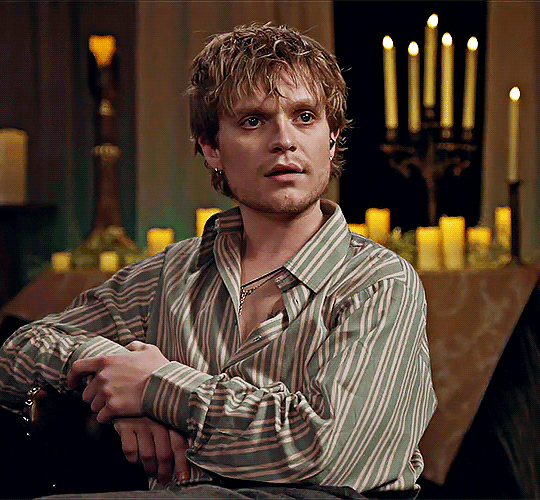
Series Summary: Aemond is embroiled in a fierce battle to secure the Democratic Party nomination and defeat his archnemesis, Richard Nixon, in the presidential election. You are his wife of two years and wholeheartedly indoctrinated into the Targaryen political dynasty. But you have an archnemesis of your own: Aemond’s chronically delinquent brother Aegon.
Series Warnings: Language, sexual content (18+ readers only), violence, bodily injury, character deaths, New Jersey, age-gap relationships, drinking, smoking, drugs, pregnancy and childbirth, kids with weird Greek names, historical topics including war and discrimination, math.
Word Count: 8.7k
Let me know if you’d like to be tagged! 🥰
💜 All of my writing can be found HERE! 💜
“My uncle, he is a doctor in Zabrze,” Ludwika says, red Yardley lips, Camel cigarette. No one cares if she smokes; she’s not campaigning to be the next first lady. Fosco is puffing on a cigar. Mimi sips drowsily at her Gimlet; you could use a few shots, but you’re making do with a Pink Squirrel, something sweet and feminine and without any bite. “So I go to him and he gives me a bottle of chlordiazepoxide.”
“Oh, Librium,” Mimi says, perking up.
Ludwika waves her hand dismissively; cigarette smoke wafts through the air. “Whatever. The next day I have my audition. A tiny man who thinks he’s God. And I give it a real shot, I try my best, I’m nice, I’m charming, but he doesn’t like me. He says my teeth are too big, like a mouse’s. This is very rude. I did not comment on his fidgety little rat hands. But okay, no problem, I have a plan. No one will stop me from getting out of Poland.”
“You drugged him?” you ask, incredulous, grinning.
“You are a criminal,” Fosco tells Ludwika. “I will call J. Edgar Hoover, you should not be so close to positions of power.”
“Listen, listen,” Ludwika insists. “Here is what I do. I thank him very much for his consideration, and then as I leave I drop my purse and things go everywhere. I filled it before I left my apartment, of course. Anything I could find, empty lipstick tubes and perfume bottles, old makeup compacts with broken mirrors, coins, hair pins, tissues, pens, gum, Krówki candies, it is an avalanche. And when he bends down to help me pick up the mess—I have to encourage him, ‘oh sir won’t you grab that, I am just a stupid girl in a very short dress,’ you understand—I put the pills in his tea.”
“How many pills?” you ask.
“I don’t know. You think I had time to count? Maybe seven.”
“Seven?!” Mimi exclaims, and you take this to mean it was a generous dose.
“What? He did not die,” Ludwika says. “I wait two days and then I go back to his office. And it is so strange, can you believe it, he does not remember my audition! So I remind him that he thought I would be perfect for the ad he is shooting in Paris. He keeps squinting at me and saying ‘are you sure, are you sure?!’ Of course I’m sure! A week later, I am standing under the Eiffel Tower with a bottle of Coca-Cola. And then I book a job in London, and then another in New York City, and one of my new model friends sets me up on a blind date with Otto. Lunch in Astoria at a horrible Greek restaurant. Who wants to eat pie made out of spinach?! Now I am here with you people, and the journalists love when I smile for them with my big mouse teeth.”
All four of you laugh at your table, an elite club, the ones who married in. It’s Alicent’s 60th birthday, and the ballroom of the Texas State Hotel in downtown Houston is raucous with clinking glasses and chatter and music and the shutter clicks of photographers. The DJ is playing Fun, Fun, Fun by the Beach Boys. Alicent is dancing with Helaena and the children, and it’s the happiest you can ever remember seeing her. Otto, Aemond, and Sargent Shriver are deep in conversation by the bar, furrowed brows and Old Fashioneds, today’s newspapers and tomorrow’s itinerary. Criston is standing with the men but watching Alicent, face wistful, silver streaks in his jet black hair, and it occurs to you that they must have grown up together: Alicent a 19-year-old bride and Criston her husband’s fledgling bodyguard, the person closest to her age in the household, near and trusted and forbidden, orbiting adolescent twins like Artemis and Apollo. You keep looking around for Aegon. No one else seems aware that he’s gone.
“Otto thought he died and went to heaven when he found you,” you tell Ludwika. “His Eastern Bloc defector princess.”
“He is going to bring my mother to the States. I would be anything he wanted me to be. I would be a model, or a housewife, or a nurse. I would be Bigfoot! But this…” Ludwika gestures broadly: to the ballroom, the city, the latest stop on the campaign trail. “It is not so bad. I never expected to serve the Polish people so far from home. You know how you stop communism? You show the world that capitalism can do more for them. There must be a path to a better life, wars must be ended, injustices must be dealt with. Aemond will do that.” She grins at you, exhaling smoke through her nostrils. “You will help him.”
You reply a bit wryly: “It’s an honor.”
“We are like four legs of a table,” Fosco observes. He points at Ludwika with his smoldering cigar. “You are a Slav fleeing the Russians. My family has ancient titles in Italy and yet no castles, no land, we are essentially homeless. Mimi’s father is a third-generation oil tycoon from Pennsylvania. And she was supposed to fix Aegon.”
“I don’t think I succeeded,” Mimi confesses.
“And then when it was time for Aemond to get married…” Fosco turns to Mimi. “Do you remember? What an ordeal. The discussions went on and on and on. She must be smart, she must be sinless, she should be from a self-made family, a real rags-to-riches story of the American Dream.”
“Right.” Mimi nods groggily, reminiscing. “And from the South.”
“Yes! But not the Deep South. No, no. Someplace Aemond could actually win. Texas, Tennessee, North Carolina. Or Florida, of course.” Now Fosco notices how you’re looking at him, because you’ve never heard this before. He quickly pivots. “But the weekend Aemond met you, it was settled. Nobody could compare.”
His tone is odd; it suggests backstories, history, mythology. Ludwika appears to be just as intrigued as you are, taking a drag off her Camel, her eyes narrowing until they are thin and catlike. You ask: “Who else was being considered?”
“No one,” Fosco answers—too quickly—and he and Mimi exchange an uneasy glance.
What did Aemond and I talk about the night we met? you think dizzily. In those first hours, minutes, thirty seconds? Where I’m from. What I was studying.
Fosco, a true Italian, then attempts to deflect by flirting. He makes emphatic, passionate motions with his hands. “You were just so captivating, so clever…”
“And young enough that Aemond could easily beat Aegon’s record of five children,” Mimi adds. Fosco clears his throat and glares at her. Mimi realizes what she’s said and gazes forlornly down into her Gimlet, mortified, groaning softly. You’ve had one c-section already, and no living son to show for it. At most, you might be able to give Aemond two or three more children; and you don’t even want them. You want Ari back. You want to touch him, to hold him, even if only for a moment, even if only once.
“It’s fine,” you try to reassure Mimi, but everyone can tell it’s not.
Ludwika breaks the tension. “You do not want twenty kids anyway. Your uterus will fall out onto the floor.” And you’re so caught off-guard that all you can do is smile at her from across the table, knowing, appreciative. It’s a strange thing to be grateful for.
“She’s right,” Mimi says mournfully. “They had to sew mine back in.”
Fosco pleads: “Stop, stop, I will need a lobotomy.”
Mimi slurps on her Gimlet. “It’s sad. I used to love sex.”
“Mimi, please,” Fosco says, wincing, holding up his palms. “You are like my sister. I prefer to think you are the Virgin Mary.”
Ludwika sighs dramatically and looks to where Otto stands on the other side of the ballroom. “I used to love sex too.”
Now you’re all howling again, rocking back in your chairs. The DJ is playing Go Where You Wanna Go by the Mamas and the Papas. Cass Elliot is the real talent in that group and everybody knows it, but of course any mention of her must be dutifully accompanied by: If only she was more beautiful. If only she could lose weight and find a husband.
“I think you like it, yes?” Ludwika says to you like a dare, puffing on a fresh Camel, red lipstick staining the white paper, blood on sheets. She combs her manicured fingernails though her voluminous blonde hair. “I could tell when I met you. You dress like Jackie Kennedy, but you are not such a statue. She belongs in a museum. I can imagine you at the Summer of Love.”
Fosco and Mimi shift uncomfortably. It’s not the sort of thing they would ever ask you. It’s too personal, too easily a segue into criticizing Aemond. It’s a usurpation of the natural order. Mimi guzzles her Gimlet and flags down a waiter to get another. Fosco takes off his glasses and cleans them with his skinny black necktie.
Sex. You think back to before you began to dread it. This is difficult, like trying to remember Greek words or British manners, which fork to use with each course. Memories from another lifetime come back in flashes: tangled up with your first boyfriend in his tiny dorm room bed, Aemond peeling off your still-dripping swimsuit on the floor of your hotel room during your honeymoon in Hawaii. You shrug and give Ludwika a nod, a brisk, ungenerous answer in the affirmative. “I always feel like I could keep going.”
Paradoxically, this does not end the conversation. Ludwika, Fosco, and Mimi study you with the same bewildered, gear-spinning curiosity. After a moment Ludwika says: “Not after you’ve finished, surely. I am half dead by the end if it’s good.”
“Finished?” you ask, puzzled. All three of them gawk at you, then at each other.
Aegon breezes into the ballroom wearing the Gibson guitar he bought in Manhattan, blue like the Caribbean or the Mediterranean or the crystalline waves off the coast of Hawaii, dotted with fish and sea turtles. Your eyes go to him immediately and stay there; you can feel the swirling warmth of blood in your cheeks. As Aegon passes the table, he squeezes your shoulder—brief, familiar, welcome—and Fosco raises his thick eyebrows. Mimi is too busy gulping down her Gimlet to notice. Ludwika chuckles, low and wicked, then slides a makeup compact out of her Prada purse to check her lipstick. Aegon goes to the DJ and yells something over the music. He’s fucked up already, you can tell, pills or booze or both.
Fosco stops a passing waiter. “Signore, did you hear who won the United Nations Handicap?”
The waiter stares blankly back at him. “What?”
“The turf race at Monmouth Park. I have $200 on Dr. Fager.”
The DJ abruptly cuts off the music. Aegon gives his guitar a few practice strums to make sure it’s in tune. He stumbles when he walks, he lurches and sways. His blonde hair sticks to the sweat on his forehead. He is woefully underdressed. His white shirt is half-unbuttoned, his denim shorts tattered; on his feet he wears black moccasins. There is a small gold hoop in each of his ears. Otto keeps telling Aegon to take them out, and every time Aegon ignores him.
“Happy birthday, Mom,” you hear him say to Alicent, and she presses a palm to her heart, her dark eyes wide and shining. “When I first heard this, it made me think of you.”
Otto and Sargent Shriver—the aspiring vice president—are glowering at Aegon. Aemond smirks as he nips at an Old Fashioned, amused; but he makes sharp, intentional eye contact with each of the three journalists. You will tell the right version of this story, he means. You will not print anything we wouldn’t want written, or my family will be your enemies for life.
As soon as Aegon plucks the first few chords, you recognize the song. “Oh, that’s really funny.”
“What?” Fosco asks.
“It’s Mama Tried.” You stand and begin clapping, then motion for the rest of the table to do the same. They obey without protest, though Mimi can’t seem to keep track of the beat. Aegon is beaming as he sings.
“The first thing I remember knowin’
Was a lonesome whistle blowin’
And a youngin’s dream of growin’ up to ride
On a freight train leavin’ town
Not knowin’ where I'm bound
And no one could change my mind but Mama tried.”
Cosmo sprints over from where he had been dancing with Alicent. He grabs your hand and tugs you towards the center of the floor. “Let’s go, let’s go!” he shouts impatiently.
“Call the FBI, I’m being kidnapped,” you say to Fosco and Ludwika as you let Cosmo drag you away.
“One and only rebel child
From a family meek and mild
My Mama seemed to know what lay in store
Despite all my Sunday learnin’
Towards the bad I kept on turnin’
‘Til Mama couldn’t hold me anymore.”
At the heart of the ballroom, Criston has swooped in to dance with Alicent, slow chaste circling. Helaena has floated off to the bar to chat with Otto, who keeps all his smiles for her. The children—Targaryens and Shrivers alike—are stomping and cheering and alternating between various moves: the Mashed Potato, the Twist, the Swim, the Loco-Motion, the Watusi, the Pony in pairs. Aemond whistles to a photographer and then nods to where you are holding onto one of Cosmo’s tiny hands as he spins around at lawless, breakneck speed. Of course this would make for a good image: you being maternal, you promising the American people that they will one day have not only a first lady but a first family.
“And I turned 21 in prison doin’ life without parole
No one could steer me right but Mama tried, Mama tried
Mama tried to raise me better, but her pleading I denied
That leaves only me to blame ‘cause Mama tried.”
Cameras flash and the crowd keeps clapping. Cosmo giggles wildly each time he almost falls and you pull him back to his feet. There is a hand skimming around your waist, a listless powder blue dress your husband chose for you. Aemond replaces Cosmo as your dance partner. Aegon’s 10-year-old daughter Violeta spirits Cosmo away; Aemond reels you in close, one palm pressed into the small of your back, his left hand gripping your right. When you steal a glimpse of Aegon—still strumming, still singing—he doesn’t look so triumphant anymore. His grin is frozen and artificial. His drunk muddy eyes go steely.
“I need you to do something for me,” Aemond begins.
Of course, you once would have said. Anything. “What is it?”
“I want you to cut your hair like Jackie.”
You’re so stunned your feet stop moving. Aemond coaxes you back into the steps. “No.”
“Think about how much more versatile it would be. Jackie is an icon, she’s sophisticated, she’s mature.”
“If you wanted a wife in her thirties, you could have easily found one.”
“Honey—”
“I do everything you ask,” you say, barely more than a whisper. “Everything. I wear what you want me to. I go where you want me to. I spend ten hours a week getting my hair fixed. I keep it up, I keep it presentable. But I’m not chopping it off.”
“You’re never going to be able to wear it down anyway,” Aemond counters, so calm, so rational, like your skull is nothing but incendiary feminine mania. “If I win, you’ll be surrounded by staff and journalists for years. You can’t be photographed with it down, you look about eighteen. And like you live on a park bench in Haight-Ashbury.”
“It’s my hair. I’m keeping it.”
Aemond leans in and says, cold and severe: “You’re my wife, and everything that’s yours belongs to me.” Then he kisses your cheek as cameras click and strobe. “Think about it. Now smile.”
You force yourself to. The crowd applauds as Aegon finishes singing and flees the dancefloor. The DJ puts on Light My Fire by The Doors. You and Aemond leave in opposite directions: he goes to talk to Eunice Kennedy, who is hugging her 3-year-old son Anthony to her chest; you return to your table to drain the last of your Pink Squirrel. You need something stronger. You need to be alone so you can collect yourself.
Now Aegon has shed his guitar and is standing with his back to the wall, smoking a Lucky Strike and talking to some campaign staffer—she looks like a girl, but she’s probably your age—who is gazing up at him worshipfully. She says something that makes him laugh, his head thrown back, his eyes sparkling, and you feel like you’re waking up from your c-section all over again, your belly split open and rearranged, aching, stabbing, nauseous.
“Are you okay?” Ludwika asks, scrutinizing you.
“I’m perfect. I’ll be right back.”
You hurry out of the ballroom, the music fading behind you. You slip into one of the elevators in the lobby and hit the button for the top floor, where Aemond’s entourage has booked every suite. As the door is closing—as only a foot of space remains—Aegon shoves his way into the elevator, startling you. The door shuts behind him and you begin the ascent. Aegon slams the red emergency stop button, and the elevator jolts to a halt.
“What the hell are you doing—?!”
“What pissed you off, huh?” Aegon taunts, stepping closer. You back away from him until you run out of room; not because you want the distance, but because you’re afraid of what you’ll do if it’s gone.
“Nothing. I’m so great, I’ve never been better, can’t you tell?”
He’s so close you can feel the heat rising off his flushed skin, you can see the miles-deep murky blue of his irises, open water, shipwrecks and drowning. “You want all this to be over? You want the women with their big, adoring eyes and their short skirts to disappear? Grow up. Stop acting like a kid. Ask for it.”
“Ask for what?”
“You know.”
If you touch him now, you won’t be able to stop. There’s nowhere for us to go. There’s no way out of this family, this year, this world. “I don’t. I have no idea what you’re talking about.”
Aegon barks out a sardonic, cutting laugh. “Yeah, you’re definitely 23.”
“I thought you loved girls young enough to be your daughters. Isn’t that what gets you hard?”
“You’re a fucking coward.”
“You’re sweating on me, you pig.”
“You want it so bad,” Aegon whispers as he presses himself against you, his ribs and thighs and hips, and you clutch for the walls of the elevator so you don’t reach for him instead. His left hand is tearing your hair out of its clips and pins so it falls free like you used to wear it; the right is all over your face, your jaw, your chin, your cheeks, touching you ceaselessly, ravenously, a blind man reading chronicles of braille. You’re trying to turn away from him, but he keeps pulling you back in. You’re breathing his rum and nicotine, you’re gasping in low, starved moans. It might be more intimate than kissing, than sex. He’s already felt your body. What he asks for now is your soul. His words are warm and aching as he murmurs through loosed strands of your hair: “Tell me you want it, please, just tell me, just tell me, tell me and it’s yours.”
Your palms land on his bare, damp chest, and Aegon starts unfastening the last buttons of his shirt. Instead, you push him away. Aegon lets you. He surrenders. “I can’t,” you choke out. You hit the red button, and the elevator resumes its rise to the top floor of the hotel.
“I’m really fucked up right now,” he says with sudden realization, swaying, staring down at his feet like he fears he’ll lose track of them.
“I’m aware.”
“I’m sorry. I think…I think I wanted that to happen differently.”
“I can’t trust you when you’re like this,” you say. I feel like I can’t trust anyone. Aegon looks up at you, his glassy eyes large and wounded. When the elevator door opens, you step out and he stays in, riding it back to the lobby.
In the suite you share with Aemond, you turn on the radio and spin the dial until you find a Loretta Lynn song. You go to the minibar cabinet and down two tiny glass bottles of vodka, something that won’t make you smell like too much of a drunk. You’ll have to fix your hair before you go back to the ballroom; you’ll have to change your dress. You’re painted with Aegon’s sweat and smoke. You can’t risk your husband noticing. You slide open the top drawer of the nightstand on your side of the bed and take out the card you keep there, the one that travels with you to each stop on the campaign trail. Loretta Lynn croons from the radio, wronged and wrathful.
“If you don’t wanna go to Fist City
You’d better detour around my town
‘Cause I’ll grab you by the hair of your head
And I’ll lift you off of the ground
I'm not a-sayin’ my baby is a saint, ‘cause he ain’t
And that he won’t cat around with a kitty
I’m here to tell you, gal, to lay off of my man
If you don’t wanna go to Fist City.”
You lie on the floor and peer up at the card in your hands: jubilant cartoon cow, festive party hat. You know exactly what’s written on the inside; it’s etched into your memory like myths passed down through millennia. Nevertheless, you read it again. The original message is still crossed out, and there’s an addendum below it in hasty black ink: I thought this was blank…congrats on the new calf!
You graze your thumbprint across Aegon’s scrawled signature. It’s smudged now. You do this a lot. One day his name might disappear altogether from the stark white parchment, from memory.
You close the card and hug it to your chest like a mother holds a living child.
~~~~~~~~~~
“What’s going on between you and Aegon?”
Alarmed, you meet Aemond’s gaze, two reflections in the vanity mirror. It’s the next morning, and you’re finishing up your makeup. Your dress and jacket are striped with black and white, your jewelry is silver, chains on your wrists and small tasteful hoops in your ears. “Nothing.” There is a lull you have to fill before it becomes suspicious. “He’s been helpful, he’s been…you know. Ever since Mount Sinai.”
Aemond adjusts his cerulean blue tie, studying himself in the mirror. He’s still wearing his leather eyepatch. Putting in his glass eye is the last thing he does before leaving the suite each day. “He was a comfort to you.”
“Well, he was there.”
“Because I told him to be,” Aemond says, resting his hands on the back of your chair. “Someone had to stay at Asteria to keep tabs on things, to let me know what you were up to. Aegon was the most expendable. Mimi and the kids make for good photos, but Aegon…he’s not especially endearing to the public. Those few years as the mayor of Trenton just about ruined him. I’d love to make him the attorney general if I win, but I don’t think the people would stomach it. Maybe if he behaves himself he can have the job for my second term.”
Eight years, you think, unable to fathom it. Eight years in a fishbowl. Eight years lying under Aemond as he tries to get me pregnant with children neither of us can love.
Aemond leans down to touch his lips to the side of your throat. “I’m glad you’re finally friends,” he says. “Aegon’s not all bad. But don’t let him get you in trouble.”
“I wouldn’t.” What did you and Aemond talk about before Ari died? What was this marriage built on? The senate, the presidency, civil rights, poverty, the Space Race, Vietnam, Greek mythology. Everything but each other. Dreams and ideals that would dwarf any mortal, would render them invisible.
“And watch out for any reporters from the Wall Street Journal. They’d kill for Nixon. If they can twist your words, they will.” He gets something from inside his own nightstand: the bloodstained komboskini from when he was shot in Palm Beach. He places it in your right hand, all 100 knots. “Give this to someone today. You know how to do it, you’ve always understood this part. Pick the right person, the right moment. Make sure there are plenty of cameras around.”
“Where am I going? Lunch with the mayor’s wife, that’s this afternoon, isn’t it?”
Aemond nods. “And a few other stops. Then we’re going to the Alamo in San Antonio tomorrow.”
“Okay.”
He recoils, reaches for the left half of his face, kneads the scar tissue there as nerve pain radiates through his flesh all the way down to the bone. Once you felt such agonizing pity for him; now all you can think about is the matching scar you wear on your belly, hidden and shameful and a badge of your inadequacies: your body too weak to protect Ari, your mind too pliable to resist being ensnared by the crushing gravity of this man, this family, this life.
“How can I help?” you ask Aemond, because it’s the right thing to do. And randomly, you find yourself remembering the statue of Apollo in Helaena’s garden back at Asteria, the god of music, healing, truth, prophesy.
“You can’t.” Aemond goes to the bathroom to force his glass eye into its socket. You depart for the hotel lobby where Ludwika and Mimi, your companions for the day, are already waiting. Ludwika is wearing a rose pink Chanel skirt suit. Mimi—relatively functional, as she hasn’t been awake long enough to ruin herself yet—is dressed in delicate dove grey.
Alicent, Helaena, and the children are scheduled to tour a local high school and library; Criston, unsurprisingly, is going with them. Aemond, accompanied by Otto, has a series of meetings with local business leaders and politicians. Aegon and Fosco are headed to the Michael E. DeBakey Veterans Affairs Medical Center to promise maimed soldiers that Aemond will end the war that carved out bits of them and filled the voids with screaming nightmares. The limousine you share with Ludwika and Mimi ferries you first to the NASA’s Manned Spacecraft Center. Mimi is entranced by the reflective surface of the helmets, coated with gold to divert blinding sunbeams; in turn, the astronauts are entranced by Ludwika, who leaves lipstick smudges on their cheeks when she kisses them. Next is a tea party hosted by Iola Faye Cure Welch, the mayoress of Houston since 1964 and the mother of five children. And as you nibble daintily at triangle-shaped sandwiches and trudge through small talk about flowers and furniture, you can’t stop smiling. You can’t stop thinking about how ridiculous Aegon would think this is if he was here.
The driver mentions one last stop, then coasts through midafternoon traffic towards the city center. You spend the ride touching up your hair and makeup. Ludwika offers to let you borrow her seduction-red lipstick; you politely decline. You step out of the limo and shield your eyes from the glare of the Texas sun. It takes your vision a moment to adjust, and then you realize where you are. The sign above the main entranceway reads: Houston Methodist Hospital. The air snags in your throat, your lungs are empty. Your hands tremble violently. The earth rocks beneath your white high heels. Mount Sinai is the last hospital you walked into, and you left with your son in a casket so small it could have been mistaken for a shoebox.
“Alright, let’s go,” Ludwika says, linking an arm through yours. Mimi, badly in need of a drink, is looking deflated and edgy. “We are almost done. And I have been promised a medium-rare steak for dinner! Mushrooms and onions too! The Statue of Liberty did not lie. This country is a golden door.”
“I can’t.”
Ludwika stares at you. “What?”
“I can’t, I can’t go in there.”
“What is she talking about?” Ludwika asks Mimi, who shakes her head, mystified.
“I can’t,” you whimper.
They’ve never seen you like this. They don’t know what to do. They listen to you, that is the hierarchy; but it’s too late to change course now. Journalists are approaching in a swarm. Nurses and doctors are gathering by the front door to welcome you.
He knew, you think, suddenly furious. Aemond knew, and he didn’t tell me.
“It will be okay,” Ludwika says, patting your back awkwardly. “We are here with you. Nothing bad will happen.”
“Oh,” Mimi breathes, understanding. She looks at you with sympathy that shimmers on the surface of the opaque, polluted lake of her mind. Then she catches Ludwika’s eye and skims a hand down her own slim midsection. Ari, she mouths, and Ludwika’s face falls.
The doctors and nurses are whistling and applauding; the journalists are snapping photos and scrounging for quotes. You feel your conditioning over the past two years taking over: straight posture, gentle smile, hands clasped demurely together. But you are locked away somewhere underneath.
“Do not worry,” Ludwika tells you softly. “We will talk, we will make it easier for you.” Then she and Mimi begin boisterously shaking hands and thanking people for coming as you make your way through the crowd of journalists and towards the main entrance of the hospital.
People are saying things to you, but you don’t really hear them. You reply with words you won’t remember afterwards. You nod frequently and go wherever you are led. Doctors are explaining new research into placenta previa and c-sections. Nurses are showing you a state-of-the-art NICU for premature infants. Someone is placing a baby in your arms, and you can’t do anything but accept it numbly. You can’t look down at it, you can’t allow yourself to feel the weight of some other woman’s child. You wear your smile like armor and let the photographers capture their snapshots, painting a frame around you, deciding where you live.
Then you are introduced to the parents, women in hospital beds and men perched in chairs beside them, just like the one where Aegon slept at Mount Sinai. They take your hands when you offer them and tell you about their small children, sick children, dying children. One patient just delivered twins. The first did not survive beyond a few hours, but the second is in an incubator and gaining strength. You recall the komboskini stained with Aemond’s blood and take it out of your purse, give it to the suffering mother, watch faith rise in her face like dawn over the Atlantic. But you won’t remember her. You cannot allow yourself to.
Outside as you, Ludwika, and Mimi are headed back to the limousine, the journalists make one last attempt to poach a headline-worthy quote. “Mrs. Targaryen! Mrs. Targaryen!” a young man shouts, clambering to the front of the horde and jabbing a microphone in your face. “I’m from the Houston Chronicle. Can you tell me how the senator feels about the failure of the most recent phase of the Tet Offensive?”
You are in a fog; you don’t feel real, this moment and this city don’t feel real, and so you cannot remember what Aemond would want you to say. “The Vietnam War has claimed too many lives already. We should have never sent our men there to die. But since that is done, the best thing we can do now is end the draft immediately and then withdrawal from the region as soon as the South Vietnamese are able to defend their own territory, which is their responsibility.” The journalist already considers this effort fruitful and begins to retreat, but you have one last point to make. Ludwika and Mimi watch you anxiously. “I lost someone in Vietnam. I met him when I was in college. He had a good heart, and he joined because he thought it was wrong for poor men to have to fight while rich kids got exemptions, and he was killed in action in October of 1965.”
“This was a friend?” the journalist asks, eyes glowing hungrily. Then he adds as an afterthought: “I’m terribly sorry for your loss.”
“A boyfriend. Corporal Cameron Marino from Schenectady, New York. People called him Cam.”
A solemn murmur ripples through the crowd. Hats are removed, hands held to chests. “Rest in peace, Cam,” someone says. Maybe they have somebody they care about in Vietnam, a friend or a lover or a brother. You wave goodbye and climb into the limousine. The outpouring swells as you vanish: We love you, Mrs. Targaryen! God bless you, Mrs. Targaryen!
In the lobby of the Texas State Hotel, you tell Ludwika and Mimi not to follow you. They have to listen. After some hesitation, Mimi heads for the bar in the ballroom; Ludwika asks the staff at the front desk if she’ll be able to make a call to Poland with the phone in her room. You take the elevator to the top floor. Fosco is in the hallway, on his way back from one of the vending machines with a Fresca. When he sees your face, his jaw drops.
“Dio mio, what happened?”
“Nothing,” you say, tears biting in your eyes. You pass him, digging your key out of your purse.
“Are you sure—?”
“Fosco, please. I don’t want to talk.”
“Okay,” he says doubtfully. Then he seems to get an idea and strides away with great purpose. You take shelter in your suite, silent and dim; Aemond isn’t back yet. You brace yourself against the locked door and sob into empty, trembling hands, at last hidden away where no one can see you, where no one can be disturbed or disappointed. You know now that none of it was healed—not the loss, not the revelations—but only buried, and now it’s all been unearthed again and the pain shrieks like exposed nerves.
It’s not fair. Ari deserved better, I deserved better.
There’s nothing you can do. Your hands ache to hold someone that no longer exists. You can’t unlearn the truth of what your marriage is.
There are two knocks, quick and rough. “Hey, it’s me.” And there’s such pure intimacy in those words. You know my voice. You know why I’m here. “Open the door.”
“I’m okay, just, just, just leave me alone—”
“Open the door,” Aegon says again. “Or I’ll get security up here to do it for you.”
Swiping the tears from your face, you let him in. He’s dressed in baggy black shorts, nothing on his feet, an unbuttoned stolen green army jacket. You once thought he wore those to play the part of a revolutionary from the comfort of his East Coast seaside mansion. Now you understand it’s because he misses Daeron, because he believes he should have gone to Vietnam instead. There are several dog tags strung around his neck; some of the veterans at the medical center he visited must have gifted them to him.
“What’s wrong?” Aegon’s eyes sweep over you, seeking, horrified. “What did he do?”
You can’t answer, you can’t breathe. You back away from him as more tears spill down your cheeks.
“Hey, hey, hey, let me help you. Please don’t be upset. Did he say something, did he hurt you?” Aegon reaches out, and as soon as he touches you your knees buckle and you’re on the floor, trying not to wail, trying not to scream, and Aegon is pulling you against his chest—bare skin, borrowed metal—and his hands are on your face and in your hair, and his lips are against your forehead as he murmurs: “Shh, shh, don’t cry. It’s okay.”
“No it’s not.”
“Whatever it is, I can help.”
“I had to go to a hospital and hold babies and I, I, I never even got to touch him, not once, not ever, and I can’t now because he’s gone. He’s locked in some fucking vault, he’s just bones, but he was supposed to be a person, and those other babies are going to get to grow up but he isn’t, and it’s not fair.”
“You’re right,” Aegon agrees softly, still holding you.
“No one else knew him.”
“I did. I was there the whole time.”
“Only because Aemond made you stay.”
“No,” Aegon swears. “I was supposed to spy on you. He never told me to do any of the rest of it. I stayed because I wanted to.”
“You did,” you say, very quietly, weakly, conceding.
“And I’m still here now.”
Your lungs aren’t burning quite so much. Your tears are slowing. You unravel yourself from Aegon, averting your eyes. Now you’re ashamed; you aren’t in the habit of revealing to people how much you’re splintering like cracked glass, fresh fractures every time you think to check the damage. “I’m, um, I’m really sorry.”
“Look, I don’t mean to bring up unpleasant memories, but this is definitely not the most embarrassing thing I’ve seen you do.”
You laugh, only for a few seconds, and Aegon smiles as he mops the tears from your face with the sleeve of his army jacket. Then he turns serious again.
“Can I ask you something? It’s very personal. It’s offensive, honestly. But I have to know.”
“You can ask.”
“Do you want more children?”
More children. Because Ari was real. “Not now. Not with Aemond.”
Aegon nods, suspicions confirmed. “Can you do that sponge thing you told me about?”
“No. I think he’d be able to feel it, he’s…” You gesture vaguely. It’s difficult to say. “He’s big.”
Aegon didn’t want to hear that. He didn’t want to have to think about it. He flinches, just enough that you notice. But as much as he’d like to, he doesn’t change the subject. “What about the pill?”
“No doctor is going to write me a prescription without my husband’s permission. Especially considering who my husband is.”
“I hate this fucking country,” Aegon hisses. “Puritanical goddamn hellscape. Old Testament bullshit.” He drags his fingers through his hair a few times, then pats your cheek like he did before: twice, gently, playfully. “Come on. Let’s go smoke.”
“I can’t do it on the balcony. Someone might get a picture.”
“Okay. No big deal. We’ll go to the roof.”
You stare at him. “The roof?”
“You really think I haven’t already been up there?” He stands and offers you his hand. “You’ll love it. The view is fantastic.”
The view is good, but the grass is better. You know that it makes some people useless, others paranoid, but for you it’s always painted the world a color that is softer, kinder, lighter, more bearable. You and Aegon lie next to each other, smoking and watching twilight fall over Houston like a spell. You’ll have to shower and gulp some Listerine before Aemond gets anywhere near you. It’s interesting; each day you seem to acquire new secrets to keep from him.
Aegon asks: “Where would you be right now if you weren’t Mrs. Targaryen?”
“Probably married to someone worse.”
He raises an eyebrow. “Okay, but let’s say you weren’t. Let’s say you can do whatever you want.” He points up at the lavender sky and acts like he’s moving the emerging glimmers of stars around with his fingertip. “There, I’ve changed your fate. Who would you be?”
You ponder this. “I want to teach math to kids and then spend every summer break getting baked on some beach.”
Aegon cackles. “Hell, sign me up.” He lights a third joint for himself with his tiny chrome Zippo. “Those are the people doing the real work. Teachers, nurses, farmers electricians, plumbers, welders, firemen, therapists, janitors, public defenders. The normal, unglamorous types.”
“You don’t think presidents and senators make a difference?”
“Sure they do. But only like 5% of the job is actually helping people. The rest of it is schmoozing and tea parties and making speeches, because looking and sounding good is better than doing good. They’re addicted to vapid pretenses that make them feel important. You live like that and you forget how to be a human. I mean, look at Nixon. The man was raised as a Quaker, one of the most peaceful religions on earth, and now he’s planning to throw ten or twenty thousand more boys into the great Vietnamese meatgrinder and probably napalm the hell out of Cambodia and Laos while he’s at it to get the communists’ supply lines. The man’s got no idea who he is anymore. I’d feel sorry for him if I wasn’t so terrified he’s gonna start World War III.”
I wonder who Aemond was a few decades ago. “What makes you feel important?”
“Nothing,” Aegon says. “I’m not under any delusions that I matter.”
“I think you matter, old man.”
“Really?”
“A little bit. About this much.” You hold your hand up to show him the infinitesimal space between your thumb and index finger, and Aegon chuckles, his eyes glazed and bloodshot.
“Let’s do it,” he says with sudden, forceful conviction. “If Nixon wins in November, we’ll get out of here. I’ll go back to Yuma to teach on the reservation and you can come with me. You get a math class, I take English, or Music, or both, whatever. We’ll buy a bungalow out in the desert and make s’mores every night and look up at the stars. I’ll show you how to play guitar if you give me algebra lessons.”
You peek over at him, intrigued. “Is that all we’re going to do?”
“Well we’ll fuck, obviously.”
“Oh, obviously.” You giggle; it’s ridiculous, it’s paradisical, it’s insane how good it sounds. But surely that’s only because you’re high. “I don’t know how Mimi would feel about that.”
“She won’t care. She doesn’t want me anymore, hasn’t in years. Sometimes she just forgets that when she’s wasted. Mimi can go to Arizona too. We’ll load up the kids in a van and strap her to the roof.”
Now your voice is somber. “She was supposed to fix you.”
“Yeah,” Aegon says: slow, meditative, guilty. “I think Mimi and I have a few too many of the same demons.”
You roll over, push yourself up on your palms, and crawl to the edge of the rooftop. You prop your elbows on the ledge and gaze out into the city lights, the sky turning from violet to indigo to primordial darkness. Aegon joins you, staring down at the distant aquamarine rectangle of the hotel pool.
He asks: “You think I could make that?”
“No.”
“Should I try?”
“You definitely shouldn’t.”
“A few months ago, you would have pushed me off this roof.”
You shrug. “You’ve proved yourself useful.”
“That’s why you like me now? Because I’m useful?”
“Who said I like you?” you tease, smiling.
“You like me,” Aegon says, grinning and smug, radiant in the silver moonlight and urban incandescence. “You like me so much it scares you. But there’s no need to panic. It’s okay. I know the feeling.”
“Yeah?”
“Yeah.”
You want to touch him, you want him to touch you, you want to study every arc and angle of him like he’s a marble statue in a garden: too beautiful to be mortal, too fragile to be divine.
~~~~~~~~~~
Three nights later in Nebraska, there is a knock on the door of your hotel suite. The nannies have herded the children off to bed; the adults are unwinding downstairs in the courtyard of the Sheraton Omaha, designed to resemble an Italian garden. There’s a brand new Jacuzzi that you’re looking forward to taking a dip in. You finish pulling on your swimsuit, white and patterned with sunflowers, a one-piece with a flared skirt.
“Who is it?”
“It’s Richard Nixon,” Aegon says through the door. “Naked. Horny. Please love me.”
You laugh and let him in. He’s leaning against the doorframe in Hawaiian swim trunks and nothing else, pink sunburn glowing on his soft chest. He holds up a brown paper bag and shakes it.
“For you.”
“What is it, heroin?” Instead, you open the bag to find small, circular packs of pills. “No way. You did not.”
“That’s enough for six months,” Aegon says, smirking, proud of himself. “I’ll be back again in February. Guess that makes me your dealer, babe. I don’t accept cash, checks, or cards, only sexual favors. You want to get down on your knees, or should I?”
“How did you get these?”
“I told a doctor they’re for one of my whores.”
“Maybe they are.”
You’ve surprised him, you’ve got him thinking about it now. His face flushes a splotchy, charming pink. “So, uh, you coming down to the courtyard?”
“Yeah. Right now. Just let me hide these first. Are there instructions in here…?”
“Mm hmm,” Aegon says, still distracted, studying the entirely unremarkable carpet. You stow the paper bag of birth control pills in the bottom of your bras and panties drawer, then walk with Aegon to take the elevator down to the ground floor. You both notice the bright red emergency stop button and share a glance, smirking, taunting.
In the courtyard, Alicent is struggling to pay attention as Helaena identifies each and every species of plant and explains where in the world it is native to. Fosco is simultaneously teaching Criston how to yo-yo and berating him for not believing the Cubs will end up in the World Series. Fosco has apparently bet $500 on them. Ludwika is stretched out on a lounge chair like a cat and reading a copy of Cosmopolitan. Aemond, wearing his eyepatch and a blue pair of swim trunks, appears to be arguing with Otto over the contents of a newspaper article. Mimi is alone in the Jacuzzi, bubbles rumbling all around her as she slumps against the rim, a frosty Gimlet clutched in one hand.
“Mimi, get out of the Jacuzzi,” you order.
“I’m fine!” she slurs, and you groan, knowing you’re going to have to drag her out.
Aemond is approaching; no, not approaching, raging. “What the hell is wrong with you? What the fuck is this?” He hurls the newspaper at you, the Houston Chronicle. The headline reads: To Mrs. Targaryen, ending the Vietnam War is personal. “Why would you tell somebody that? Other papers are going to start reporting this. You gave them his full name. They’ve found his school, his friends, his gravesite in motherfucking Arlington National Cemetery—”
“You set me up,” you say. “You didn’t tell me about the hospital.”
Aegon takes the newspaper from you and frantically skims the article. “Hey, man,” he tells Aemond as he pieces it together, attempting to deescalate. It’s not a skill you knew he possessed. “She was rattled, she wasn’t thinking clearly. And there’s nothing bad in this article. It makes her sound invested and sympathetic, not…um…whatever you’re thinking.”
“You don’t get it,” Aemond seethes. “Journalists are going to start hounding his friends, his classmates, people who lived in his dorm building. Nixon’s newspapers will publish any gossip they can dig up about what she did when she was in school. Things people saw, things people overheard—”
“What, the fact that she had one boyfriend before she met you? That’s worthy of a nuclear meltdown?! Better prepare for Armageddon, a woman got laid, launch the goddamn warheads!”
“She doesn’t get to have a past! She should understand that, she signed up for this, she knew exactly what was expected of her!”
“And what about your past?” Aegon says, low and searing, and Aemond goes quiet. Their eyes are locked on each other: Aegon defiant, Aemond unnerved. You try to remember if you’ve ever seen that expression on his face before. You don’t think you have. Not even when he was shot and half-blinded. Not even when Ari died.
“What does that mean?” you ask your husband. Still staring at Aegon—tangled in a thorny, silent battle of wills—he doesn’t reply.
There are swift, thudding footsteps. Otto grabs Aegon by his hair, hooks a finger through the small gold hoop in his right ear, and tears it straight through the earlobe. Aegon screams as blood streams down his face, feeling the ravaged fringes of his flesh.
“I told you to take those out,” Otto says. “Now remove the other one before I rip it free, and go get yourself stitched up.”
You do something you’ve never done before, never even thought of. You strike out with both hands and shove Otto so hard he goes staggering backwards, his arms wheeling. The others are yelling and rushing over. Aemond is trying to yank you to him, but he can’t get a grip on your swimsuit. “I will kill you!” you roar at Otto. “I will push you down a staircase, I will slit your fucking throat, don’t you ever touch him!”
Alicent is weeping, appalled, trying to get a look at Aegon’s damaged ear. Criston is helping her, moving Aegon’s bloodied hair out of the way. Fosco links his arms around your waist and drags you out of Aemond’s reach just as he’s getting his fingers beneath a strap of your swimsuit. Helaena is covering her face with her hands and wailing. Ludwika is shrieking at Otto: “What did you do? Don’t give me that, what did you do?!”
You are engulfed with rage, red and irresistible. You’re trying to bolt out of Fosco’s grasp. You want to claw Otto’s eyes out; you want to put a bullet in him. As you struggle, you catch a glimpse of the Jacuzzi. You don’t see Mimi anymore.
“Wait,” you plead, but nobody hears you over the noise. You look desperately at Fosco. “Where’s Mimi?!”
Once he figures out what you’re trying to say, he whirls towards the Jacuzzi. “No!” he bellows, releasing you, and careens across the courtyard. You dash after him. Now the others understand, and they come running too. You see it just before Fosco dives in: there is a shadow at the bottom of the Jacuzzi. When he bursts up though the roiling water, he is carrying Mimi, limp and unconscious and blue.
Everyone is shouting at once. Fosco lays Mimi down on the cobblestones of the courtyard. Criston sends Ludwika to call an ambulance, kneels beside Mimi, checks for a pulse. Then he begins CPR. When he breathes air into her flooded lungs, there is no response, no resurrection.
“No, no, no, she has to be alright!” Aemond says, and everyone knows why. If she’s not, this will consume the headlines for days: no victorious campaigning, no speeches or photos, just a drowned alcoholic with a damning autopsy report.
“Oh my god,” Otto moans, pacing. “This can’t be happening, not this year, not now…”
Alicent seizes your hand and squeezes it until you think it will break. She is reciting prayers in Greek. Helaena is curled up under a butterfly bush, sobbing hysterically. When he realizes this, Otto hurries to comfort her.
“Don’t watch, Helaena. Let’s go inside, I’ll walk with you, there’s nothing more we can do here.”
“Mimi?!” Aegon commands, slapping her hard across the face. “Mimi, come on, wake up! Mimi? Mimi!” She’s still motionless, she’s still blue. Aegon turns to you, blood smeared all over the right side of his face. He’s petrified, he’s in shock. “I think she’s…she’s…”
“She’s gone,” Criston says; and he lifts his palms from her hollow body. The silent sky above is a labyrinth of bad stars.
#aegon ii targaryen#aegon targaryen#aegon targaryen ii#aegon ii#aegon targaryen x reader#aegon x reader#aegon ii x y/n#aegon ii x you#aegon ii targaryen x reader#aegon ii x reader#aegon ii fic#aegon targaryen x you#aegon targaryen ii x you
317 notes
·
View notes
Photo






BECOMING ELIZABETH REWRITE
I’m so sorry this is like 2 years late lol.
After my re-imagining of The Spanish Princess Series 2 (as well as a proposed series revolving around Mary I’s adolescence) here I am, constructing a more historically accurate version of the Starz series Becoming Elizabeth.
I mixed two rebellions (Kett’s and Prayer Book) together and shortened the episode count, because we did not need six episodes of Thomas Seymour!
This is Elizabeth learning from a variety of mentors to actually... become Elizabeth, Gloriana!
Episode One - Replete With Sorrow
In the middle of the night, Lady Elizabeth Tudor and Prince Edward are woken from their sleep and told their father, King Henry VIII is dead. They embrace weeping as the men bow before their now king, Edward VI.
The pair go to court, which is clad in black for mourning. There, they have an emotional reunion with their step mother Katherine Parr and older sister Mary.
The three siblings dine together, reminiscing fondly over their father. Edward asks Mary to attend his coronation; she politely refuses, saying she needs to go and oversee the new lands their father’s will granted her. Talk turns to marriages; there is already rumours that Edward is to marry Mary Queen of Scots as their father’s wishes made clear.
A proud Elizabeth attends Edward’s coronation. At the banquet afterwards, Katherine introduces the newly crowned Edward to Archbishop Thomas Cranmer. They discuss expanding his father’s religious policies. Overhearing, and jealous of the dowager queen’s influence, the Duchess of Somerset Anne Seymour begins to argue with Katherine over precedence and jewels. Elizabeth watches on, a careful observer on how to react. Thomas Seymour interrupts, erasing the tension and making the irate King laugh. Katherine casts him a grateful glance. Elizabeth is charmed/smitten by him.
As the Duchess leaves, Katherine says Elizabeth must pack her things as she is going to live with her away from court if she finds that agreeable. Elizabeth is ecstatic, as is Katherine.
Weeks pass; it is spring.
Elizabeth sits with her cousin Lady Jane Grey, being tutored by her schoolmaster William Grindal. The two constantly try to beat the other in languages, etc. There is a fierce rivalry between the pair.
Elizabeth walks with her governess Kat Ashley and lady Isabella Markham in the gardens, still clad in black. She complains about Lady Jane Grey, who always tries to beat her in lessons. Her father would not have stood for it. It is clear she misses him.
Katherine calls the trio inside, where she is standing with Thomas Seymour. She reveals she secretly married him a few weeks ago, and he is now to live with them.
At dinner, the pair quiz Elizabeth on what she has learned. They’re impressed; Thomas compliments her and Elizabeth flushes, pleased at his attention. Katherine leaves, claiming she feels sick.
Thomas talks of grief, saying he knows it well after the death of his sister, her brother Edward’s mother. He says her father wouldn’t want her to grieve him forever, it has been several months now and she shouldn’t feel guilty to be happy again. He reveals he saw her in the garden earlier looking upset; she tells him what had happened. He assures her she is better than Jane in every way. Elizabeth smiles and bids him good night.
In bed, she sighs dreamily to Isabella and Kat about Thomas Seymour; did they know he had commanded her father’s army? They warn her to be careful but she ignores them.
The next morning, she is woken by Thomas and Katherine tickling her. Winking, Thomas offer his hand. Flushed, Elizabeth smiles and takes it hand eagerly.
Episode Two - Noli me Tangere
Katherine and Elizabeth watch as Thomas storms about. He is annoyed over his brother being made Lord Protector of the King and he has nothing. Elizabeth approaches him and asks if he is okay. He says can’t Elizabeth ask her brother for help for him? Elizabeth is uncomfortable. She doesn’t have that much power. He begs jokingly on his knees, kissing her hand then her cheeks, and she laughs giddily, the tension disappeared as they talk.
Katherine and Grindal tell her and Jane Grey that Edward is releasing a new prayer book in English, not Latin with the help of Archbishop Cranmer. Katherine supports it. As a result, Grindal gives Elizabeth an updated list of work.
Elizabeth is involved in her studies, avidly reading. She rebuffs Thomas’s playful advances, saying she is busy with work her tutor Grindal gave her. Thomas is peeved.
Later, Katherine angrily asks Elizabeth if is true what Thomas told her - that she had been embracing her tutor William Grindal. Confused, Elizabeth bursts into tears and refuses it. Katherine apologises and comforts her, blaming her confusion on her current state - she is pregnant.
The next morning Thomas comes alone to Elizabeth’s bedchamber as Katherine feels ill. Elizabeth fears she is avoiding her because of what happened with Grindal. She wonders who would make something like that up. Thomas says someone jealous of such a beautiful and smart girl, hinting at Jane Grey. Elizabeth is incensed. Thomas diverts her with more tickling, then suddenly slaps her behind. She jumps, startled and laughs uncomfortably. Kat orders him away while Elizabeth is dressed. She hears Katherine and Thomas fighting in a room nearby over him going to Elizabeth’s room without her. Miserable, Elizabeth puts her mourning dress back on.
While walking with Isabella and Kat in the gardens, Thomas appears and says he told her she looked better in colours, not black. He chases her around, with Katherine suddenly appearing and joining in. She holds her down as Thomas slashes Elizabeth’s mourning dress to pieces. The pair of them are laughing but Elizabeth is close to tears.
Later that night an upset Elizabet talks to Kat, who says tomorrow morning she won’t let Thomas near her into her bedchamber. He protests his way in anyway, shaking the hangings as if he is to get in. She pulls her bedcovers up and Kat tells him to go away in shame as he tries to kiss her. He leaves laughing, saying he will get her when he returns from court.
An ill and extremely pregnant Katherine writes to her husband, and asks Elizabeth to arrange a messenger to get the letter to him. On the outside of the letter, in Latin, Elizabeth writes “Thou, touch me not”, then crosses it out and writes instead, “Let him not touch me”.
She devotes herself to her studies, and when Thomas finds her on his return, she is frightened. He doesn’t see her obvious distress, tossing her book over his shoulder, stroking her cheek and begging him to forgive her for the dress incident. She nods, and he pulls her into a tight hug Thomas Parry witnesses.
She is abruptly dismissed by a cold Katherine to Anthony Denny and his wife, Kat’s sister. Elizabeth is upset, and her stepmother softens a little, assuring her this is the best for all three of them.
Episode Three - Hope Prevailing
At the Denny’s, Elizabeth is devastated to hear of Katherine’s death in childbirth.
Her new tutor, a French preacher Jean Varon, instructs her in the new doctrine and the French tongue. They talk about the new prayer book; Elizabeth thinks it is a good thing but Varon says there are rumours the common people will revolt.
Elizabeth returns to her old childhood home of Hatfield House, and has a moment of peace with her ladies and Kat.
They are interrupted by Thomas Seymour visiting. He seems unhinged. Thomas proposes marriage, but Elizabeth is horrified and refuses. Kat thinks he would make a good match considering his status, but she stands firm. She tells her lady Isabella she will never marry, after seeing what happened to her father and mother.
While walking in her estates Elizabeth witnesses angry peasants tearing down fences. Her preacher Varon tells Elizabeth the people have rebelled against enclosure laws, but chiefly the new prayer book.
Elizabeth learns Thomas has tried to kidnap Edward VI and shot and killed the king’s dog during the kidnapping attempt.
As a result, Thomas is arrested for plotting to kill the King, his brother and King’s Protector, the Duke of Somerset, and marry Elizabeth.
Privy Councillors arrive in Hatfield to question Elizabeth, while Kat is taken to the Tower.
Elizabeth is interrogated. She denies any knowledge of Thomas Seymour’s actions, saying her reputation is being defamed and she wants a proclamation put out denying rumours of any relationship with him.
She gets her wish, and writes to Edward Seymour to say thank you for the proclamation as his brother Thomas is executed. She is informed the rebellion has been ruthlessly supressed by John Dudley.
With the threat of an uprising and Thomas Seymour both disappeared, Elizabeth gets an invitation to visit the King for Christmas. She is anxious to please him and declares she will wear white for her innocence from this moment on.
Episode Four - Christmas
1550 bottle episode focusing on the awkward Christmas dinner with the 3 Tudor siblings!
Upon her arrival at court, garbed in angelic white, Edward rewards Elizabeth with Kat being returned to her. She embraces her governess lovingly. Elizabeth is invited by Mary’s lady, Susan Clarencius, to play cards. She accepts.
Mary questions Elizabeth, unsure whether to believe the claims issued of her innocence. Mary has also heard about an updated prayer book being released that Edward himself has had a hand in. Elizabeth reiterates her innocence. After, Mary tells Susan privately that Elizabeth is so like her Mother...
Edward is preparing for the feast. John Dudley informs him that Edward Seymour does not have the nerve to tell him, but he will. He has broken the king’s betrothal to Mary, Queen of Scots, who is now engaged to the French Dauphin. Edward is furious.
The table is set for a magnificent feast. The trio begin amicably enough, reminiscing on their shared childhoods with their father. However, soon the tension overwhelms them, with all their emotions coming out. Mary begs Edward not to release his new prayer book, but he replies he is not a child, he is King. Elizabeth tries desperately to keep the peace between the oldest and youngest Tudor siblings. The night ends with Mary leaving, ignoring Edward. King Edward orders her servants to be arrested, and has a furious monologue to Edward Seymour. His brother had taken advantage of his sister and stepmother, and Edward himself had taken him to Windsor - a prison! John Dudley was the one who had the nerve to tell him he has ended up breaking his betrothal to Mary Queen of Scots, who is now engaged to the Dauphin of France. He will look an idiot as her mother Marie of Guise is visiting his court soon! He has obvious and ominous shades of Henry VIII in his behaviour.
In the aftermath of the evening, Edward Seymour is arrested and beheaded. Edward, backed by the Privy Council, announces John Dudley is to be the Duke of Northumberland and new Protector of the Realm due to the loyalty he had shown him in suppressing the rebels, promoting the new religion and aiding the King.
Elizabeth congratulates her friend and John Dudley’s son, Robert, who has arrived at court to celebrate the advancement. He is full of joy; he has married a lady, Amy Robsart.
King Edward, overhearing, is happy for them. He thinks it is time for Elizabeth to marry.
Episode Five - Sister Temperance
Several months have passed. Elizabeth and Edward are watching bear baiting. Whilst the beasts fight, Edward goes through a list of various potential suitors for his Sweet Sister Temperance. Elizabeth is non-committal.
She is saved from further answer by their sister Mary, interrupting the event. She and the large company of people with her all wear prayer beads as Mary begs for her servants to be released. Both Edward and Mary end up crying, and he eventually promises to release them. She leaves, begging him not to think badly of her.
Marie of Guise is to visit court soon, and in the absence of a queen Edward nominates Elizabeth to host her. Jane Grey comes to court as part of the festivities and her and Elizabeth’s old rivalry flares again.
Robert Dudley finds it amusing, especially when the King falls into fervent conversation with their cousin on Protestantism.
Edward is taking more of a leading role in state, having talks with Archbishop Cranmer about the new and improved prayer book. Some wonder if the Lady Mary and others of the old faith will rebel again; John Dudley says he’s stopped one uprising, he’ll finish another if it happens.
Marie of Guise visits court. Elizabeth talks with her about the young Scottish queen Mary, her daughter, and her marriage, and the challenges of ruling a country.
During the festivities, Elizabeth and Robert Dudley are having fun together. Robert says his wife doesn’t like court, and reveals his father is trying to convince King Edward to marry Jane Grey. He laughs, guessing from her sour attitude Elizabeth would not accept her as a queen.
Episode Six - Troublesome Waves
John Dudley wishes to exchange one of his houses for hers, and Elizabeth is not pleased. She reluctantly agrees when Robert visits, taken by his charm. He says she need not fear, for her brother Guildford is marrying Jane Grey now, not the king, who is ill.
Elizabeth sets off to see her brother, but is turned away by his guards.
She is extremely worried about her brother, turning to prayer.
Elizabeth is asked to relinquish her claim to the crown via a grant of more land and money. She refuses.
She talks with Kat and Isabella. Because of Mary’s obvious religious differences, she has come to believe she will become queen upon Edward’s death.
News breaks of Edward’s death/Jane’s accession/Mary’s rebellion. Elizabeth is upset, grieving, incensed with betrayal that her brother has looked her over. She is urged to act by her ladies. John Dudley and Mary both send messengers; she listens to both and plays them against each other then feigns illness, arming her guards for protection as she waits for the outcome.
Mary proves victorious and Elizabeth makes orders to go to London.
Elizabeth greets Mary, assuring her she was preparing her servants to bring them to help her cause. She watches statues and crosses be put back up with foreboding.
Jane Grey and Guildford Dudley are sentenced to die, while John Dudley is executed. Elizabeth comforts Robert.
At night, she sneaks out in secret to see her old tutor Jean Varon. He wants to leave England, but she orders him to remain, telling him not to leave or abscond, but for he and other followers of Protestantism to show themselves in the streets. They need to fight back against what Mary plans! Varon nods, and tells her now Edward is dead they look to her for guidance and hope for the nation.
Elizabeth attends Mary coronation. The new French ambassador, Antoine Noailles, introduces himself. He says Marie of Guise spoke highly of her, and that the crown would look good on her head... Elizabeth gazes at it thoughtfully, and merely smiles in response.
#you can probably tell I ran out of steam after the first two episodes lol but I really wanted to show an accurate portrayal of her abuse ins#*instead of the romanticised shit we got#becoming elizabeth#elizabeth i#elizabeth tudor
70 notes
·
View notes
Note
If you don't mind I have a question about Islamic culture, I'm thinking about how Christians have statues of Christ and saints, other religions have statues of the Buddah and Hindu gods, it's a very common thing across many religions. Judaism doesn't really have that as far as I know but there aren't really prophets in the same way as xtianity. But Islam does have various prophets and significant historical figures, but I have never seen any statues made in their images. Is this a thing, not allowed or just not culturally uh, common I guess? Thank you :3
Islam has always pertained to a rather iconoclastic tradition and has shown fierce opposition to visual imagery in various forms, while some schools and branches of Islam are not as strict. Historically, alternative forms of art have been produced as a result. Indeed, Islamic art are traditionally non-representational in the form of Islamic calliography and Islamic geometric patterns, which is usually seen in mosque, shrines and various Islamic buildings.
The basis for the impermissibility of such visual imagery in the form of sculptures or carved objects representing a living being is rooted in Islam's strict monotheistic approach. The nascent Muslim community had to deal with the polytheist tribe of Quraish which worshiped idols in the form of sculptures. The Prophet Muhammed (sawas) showed disdain for such worshiping and exemplified their uselessness to the people by throwing them to the ground.
However, while sculpturing is pretty much a non-go, this impermissibility is not extended to art in the form of two-dimensional figures. While various schools of Islam differ in the opinion of drawing, not all of them are unanimous, this has allowed for Islamic art to take the shape of form in different ways. For example, Shi'a Islam allows visual respresentation through the use of a two-dimensional surface, such as a canvas, regardless of whether it is a living being or not. This is why you'll find that art of the prophets, imams and the holy ladies are pretty commonplace among Shi'a Muslims.
While sculpturing any object representing a living being is unanimously considered impermissible in all Islamic schools of law, art in the form two-dimensional paintings are not.
145 notes
·
View notes
Text
FEMALE MOVIE/TV RECS (PART 2 / HISTORICAL FICTION/NON-FICTION)
got inspired from a recommendation post so decided to make a list of movies and shows with female-centric stories/female protagonists. since i can't post all of the genres in one post, i'll split it into multiple posts and y'all can save or add to the list as you wish. (disclaimer: i have watched most of these, but i only know about the existence of others. not every movie/show on these lists will be my recommendation. my recommendations will be beneath the list with reasons. also some of these are way better than others in terms of storytelling/performance--which is why i'll list my faves separately):
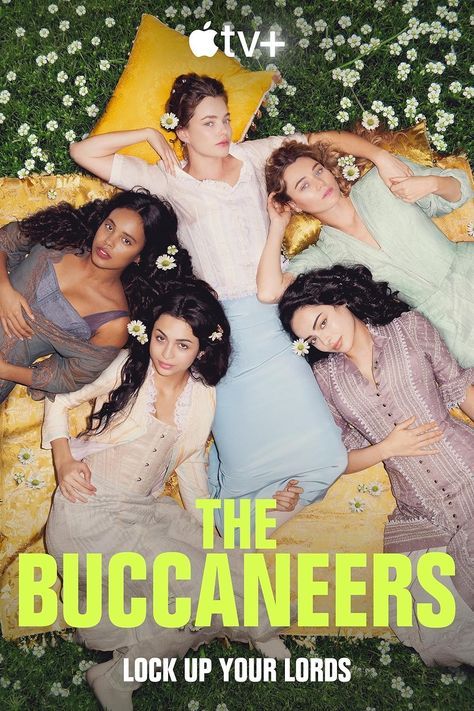
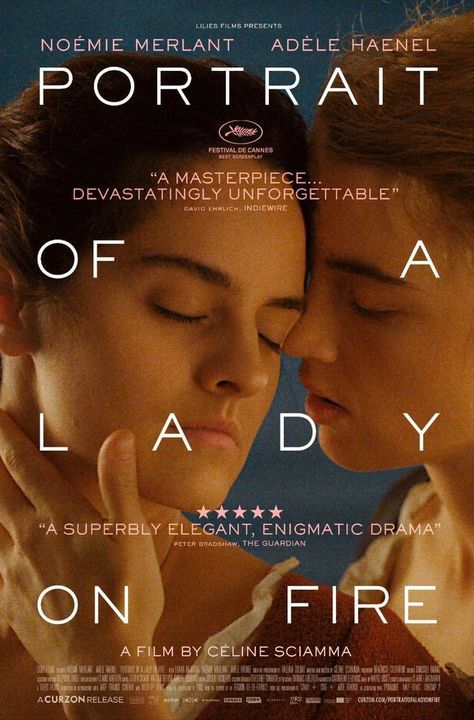
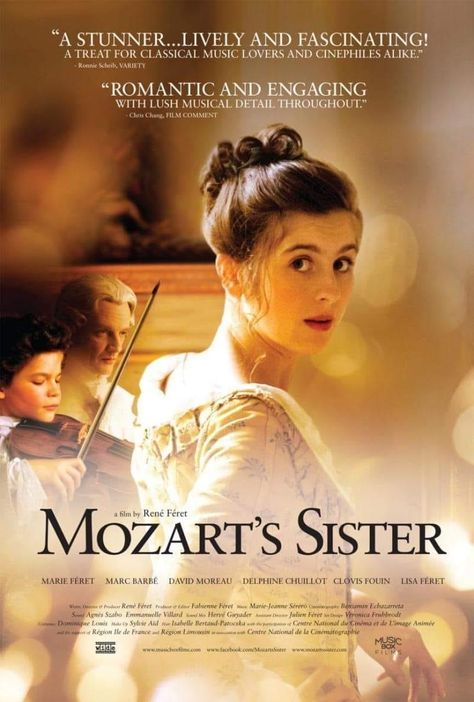



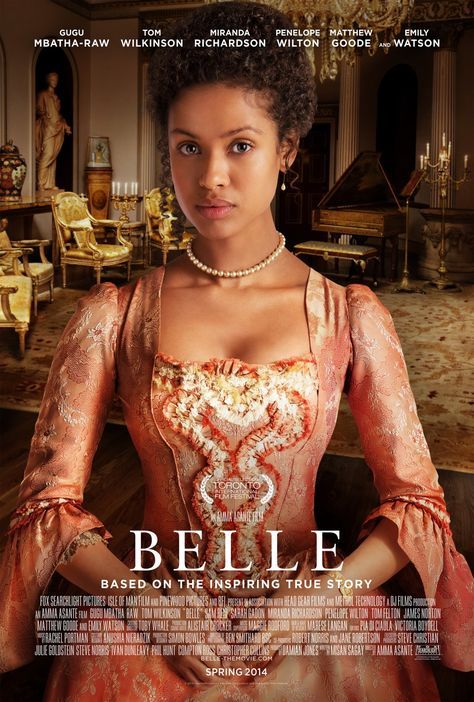
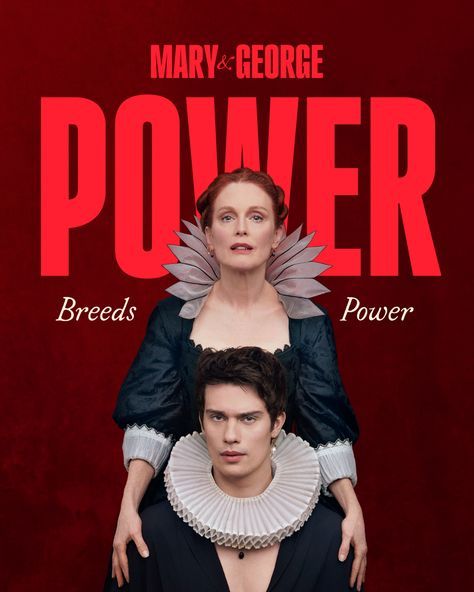
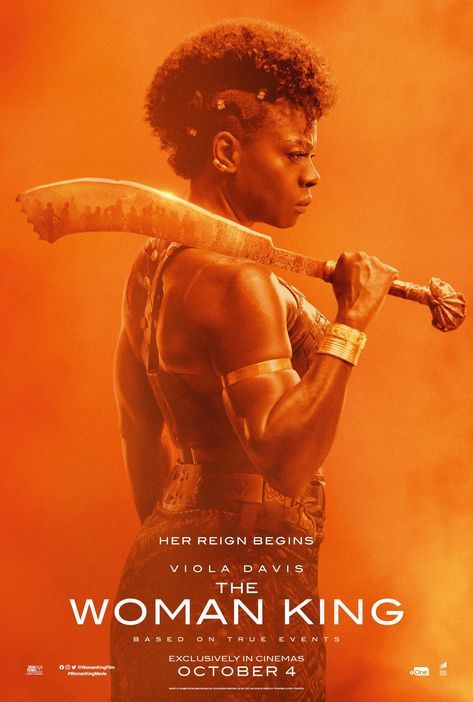
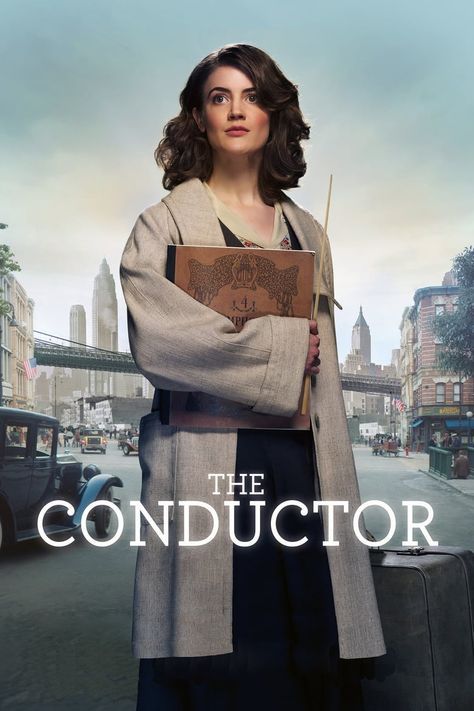
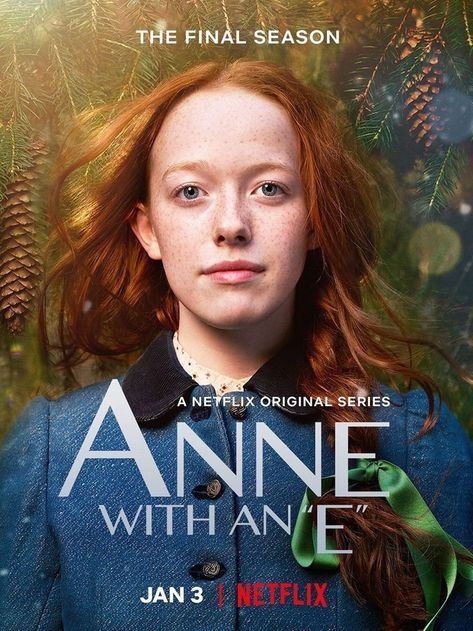
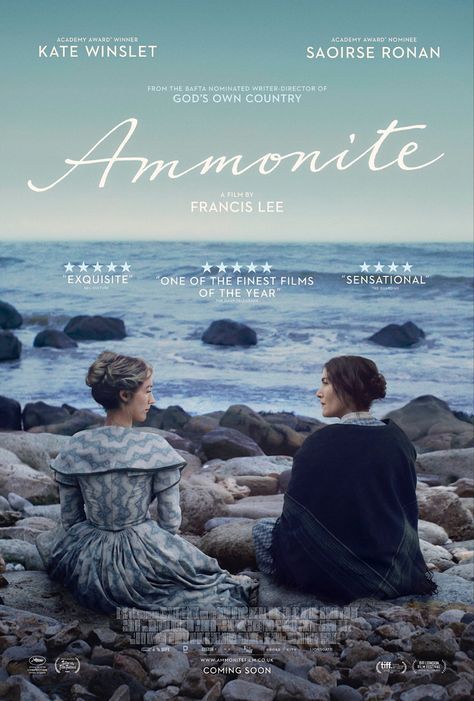
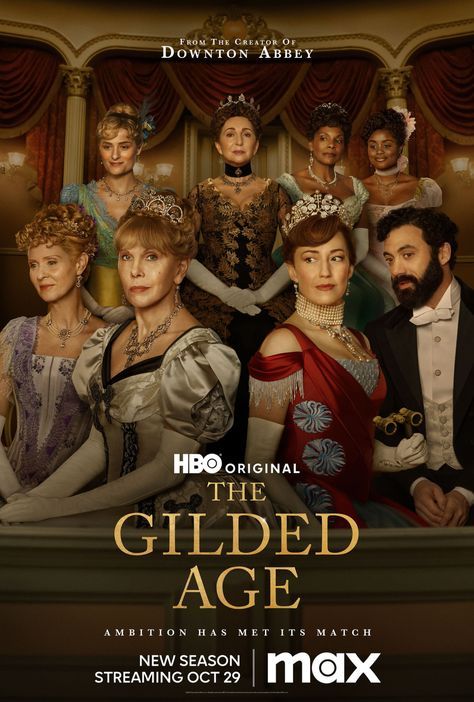
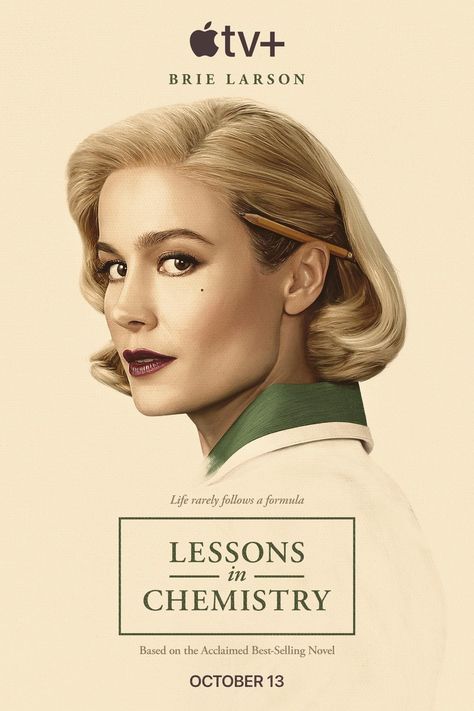
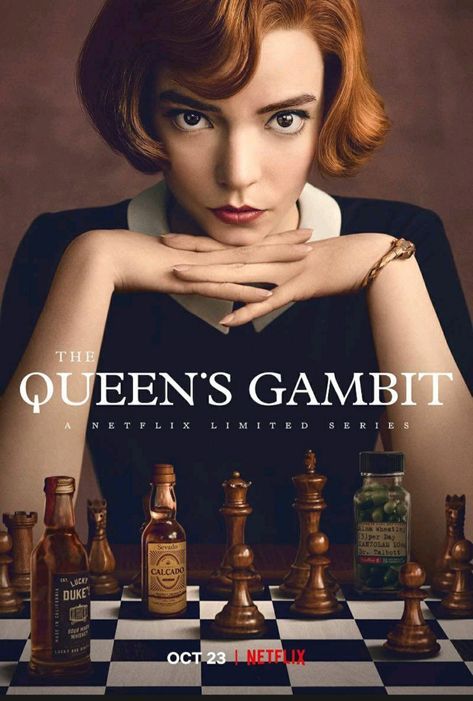
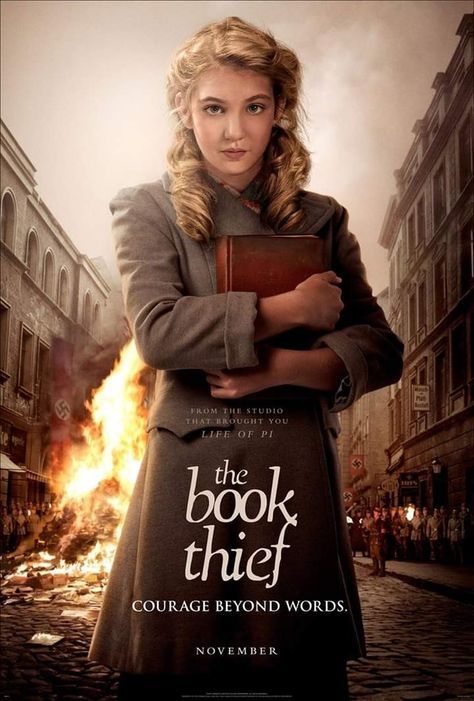
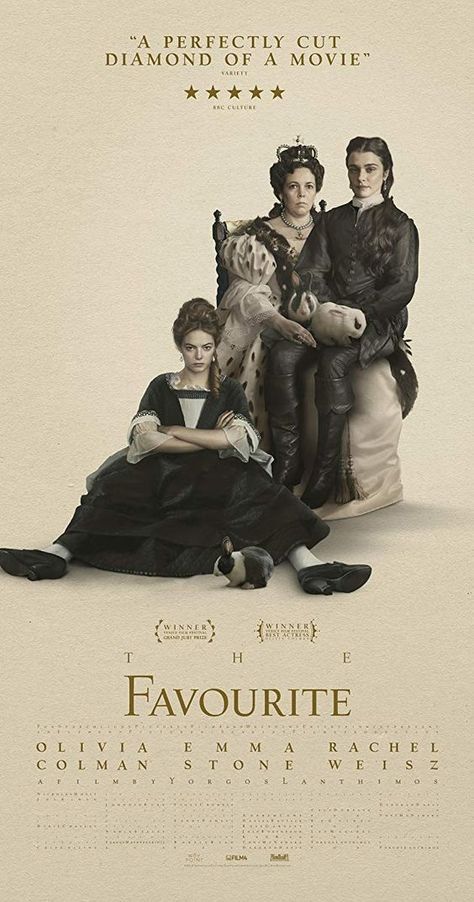
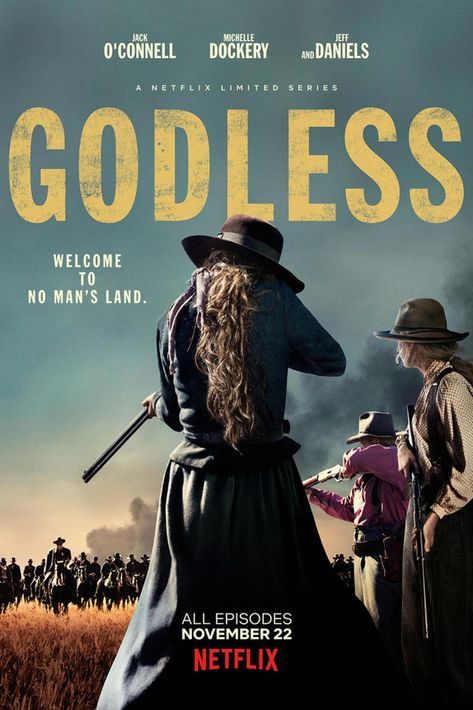
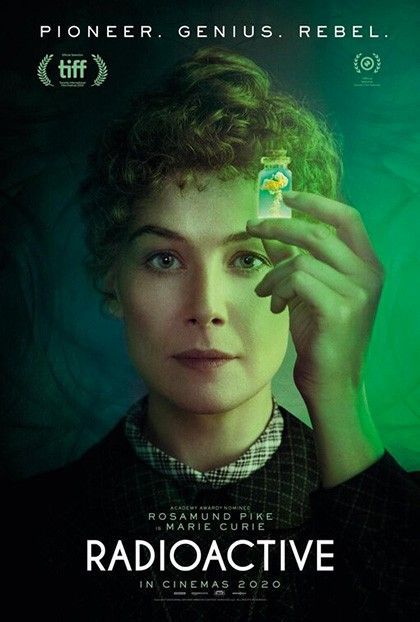

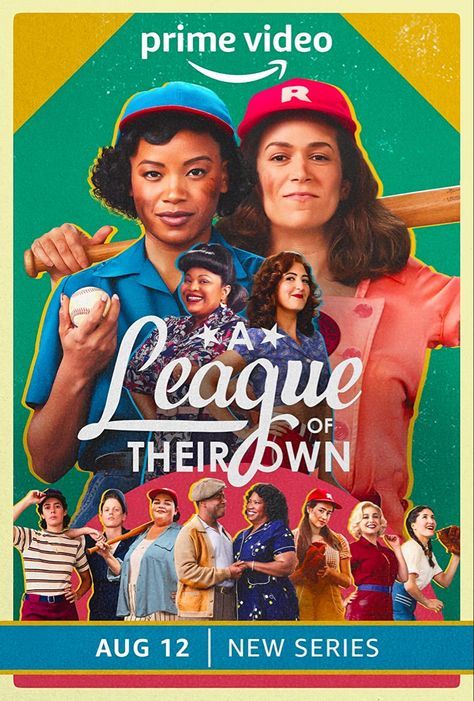
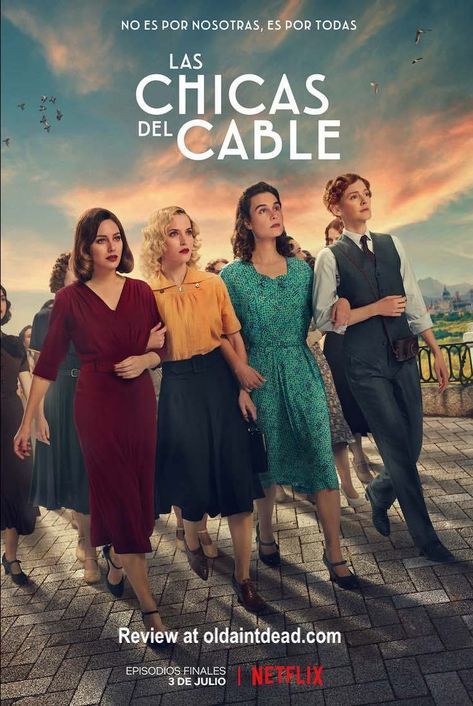
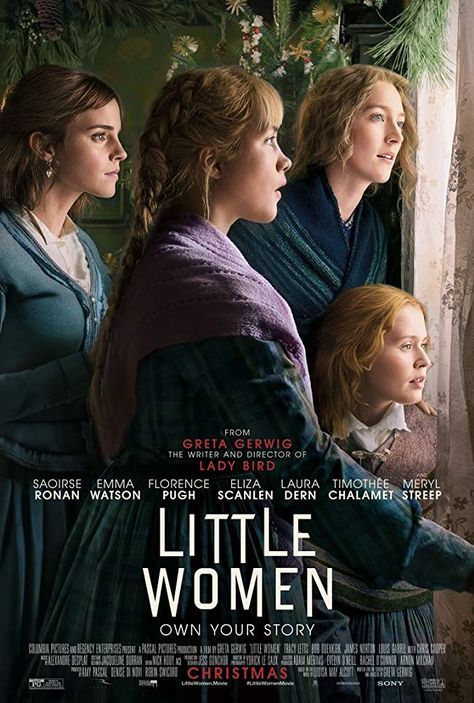
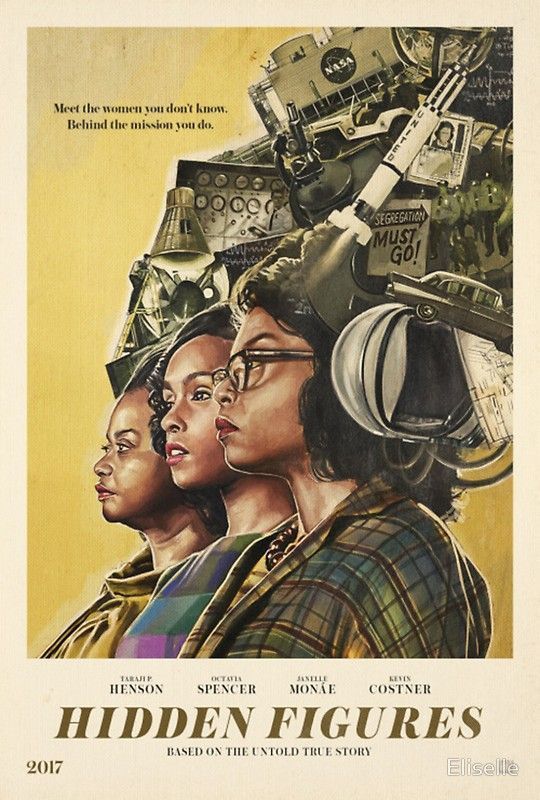
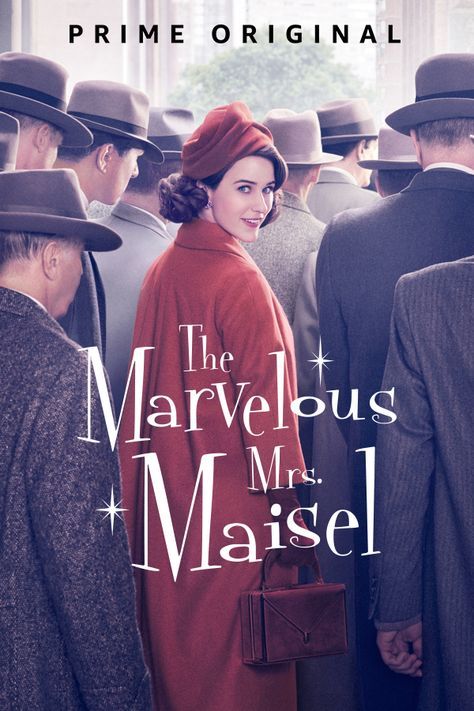
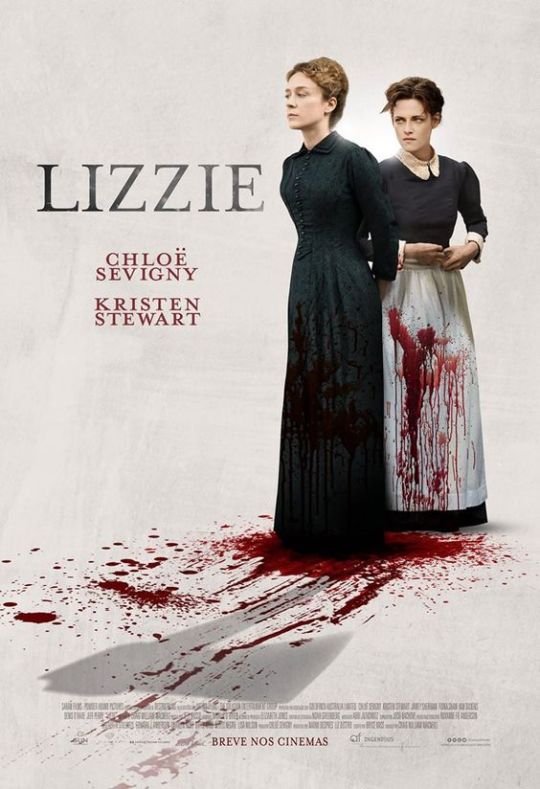
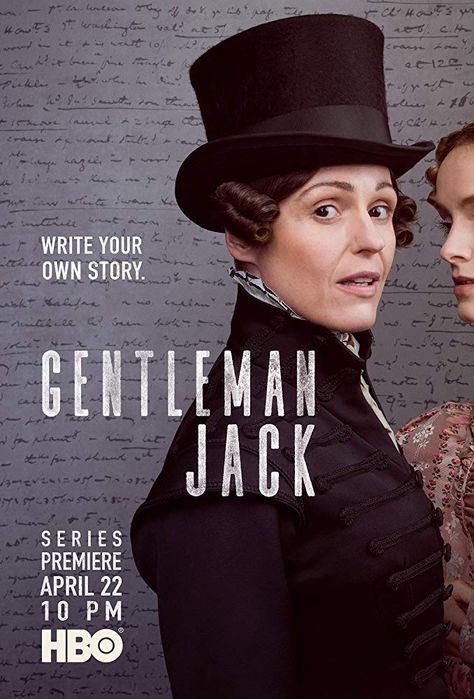
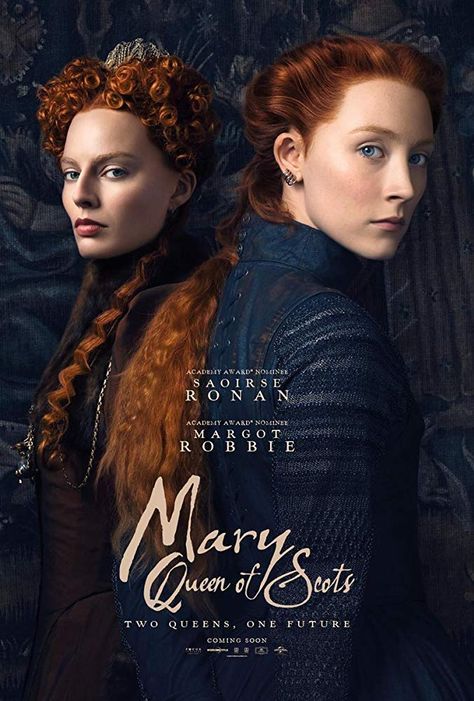
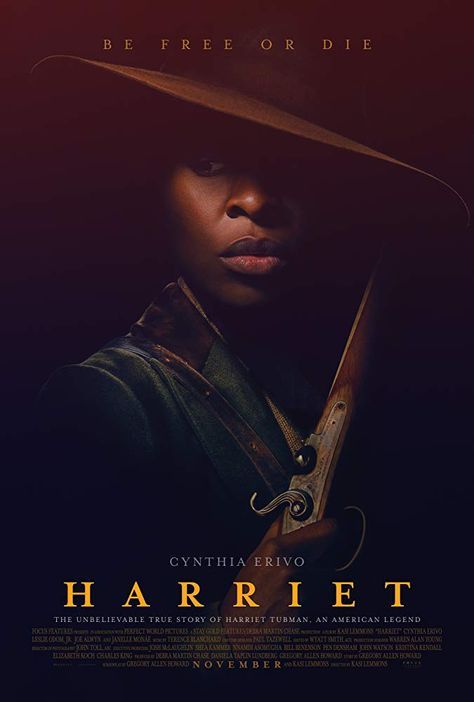

Common Themes of Media in the List:
-Workplace/general sexist discrimination
-Husband being pieces of shit and whiners
-Strong emphasis on sisterhood
-Romance plays a large part (both hetero and homo)
-Female genius and triumph
-Scheming mothers (always scheming)
-Grief, loss, and growth
-Motherhood is difficult but we pull through TM
HAVEN'T WATCHED:
Mozart's Sister
Lessons in Chemistry
The Conductor
Lizzie
Radioactive
Cable Girls
The Great
The Queen's Gambit
Britannia
Harriet
Mary Queen of Scots
ONES I LOVEDDDD:
A League of Their Own (9/10) (a favorite!)
Hidden Figures (8/10)
The Woman King (8/10) (a favorite!)
Anne With An E (9/10) (a favorite!)
Dickinson (8.5/10)
The Marvellous Mrs. Maisel (9/10) (a favorite!)
Gentleman Jack (8/10)
The Gilded Age (7.5/10)
HONORABLE (NON-LISTED MENTIONS)
The English (an english woman teams up with a native american cowboy to take revenge on the men who hurt them)
The World to Come (two women isolated by the wilderness and their husbands fall in love)
The Pursuit of Love
Colette
PERSONAL NOTES:
The Buccaneers is pretty feminist and wholesome, although oftentimes childish and full of Netflix cliches (even though it's an Apple TV original). It tries very hard to be Dickinson and Little Women but is a far cry away from Dickinson's edge and fierceness and Little Women's maturity and realism. It's more interested in appealing to Bridgerton audiences and its worse for it. But it's still full of the nice stuff, like strong female friendships and sisterhoods. Ooh, and lesbians! It's adamantly female-centric.
As for Little Women, I prefer the 90s version with Winona Ryder, but Greta did more justice to the source material than Louisa May Alcott herself in the new version.
The Book Thief and The World to Come are also tragedies, so you know. Ammonite, Portrait of a Lady on Fire, Summerland and The Favourite are lesbians and bisexuals in their full glory, although all of them have vastly different tones (The Favourite is a dark comedy, I believe).
Speaking of The Favourite, Mary & George is like that but it's men vying for the affections of the king. Don't get it twisted though, Mary, George's mom, is the protagonist and primary mover of the show. It starts and ends with her. Also, more lesbianism! (I don't get tired of pointing that out.)
Belle is one of the few autobiographical historical fictions of a black woman. My dad and I love it. It, however, does not surpass The Woman King. The Woman King is like . . . one of the best historical movies on African women I've ever watched! Or just in general! It gives so much agency to African people in the colonial age and tells the story with nuance and perspective--it is a decolonized view on the slave trade that places West African people at the center. It's pretty intense and gory, though. Like it's dark, but like the performances are insanely good, and so is the story. Real life Wakanda and all that!
#radblr#feminism#female centric stories#female stories#historical fiction#female historical fiction#entertainment#women in entertainment#hadesoftheladies rec list
129 notes
·
View notes
Text
The Enigma of Elune & the Elements

The goddess Elune is known by many names across cultures and even planets; such as Mother Moon, White Lady, Night Warrior, Mu’sha, etc. She has a wide reach across various spheres of cosmology, and her domain seems to at least encompass the arcane, the natural, the astral, the spiritual, and in many unexpected connections–the elemental. It could be that, as Elune is considered a life goddess with some connections to the afterlife, she may have pseudo-elemental expressions of power because they are partially intertwined with spirit. This might explain the physical tangibility, and yet silvery-blue coloring that often manifests within elements of Elunian origin. The following is a collection of curiosities in which the goddess’s influence presents itself in such forms.
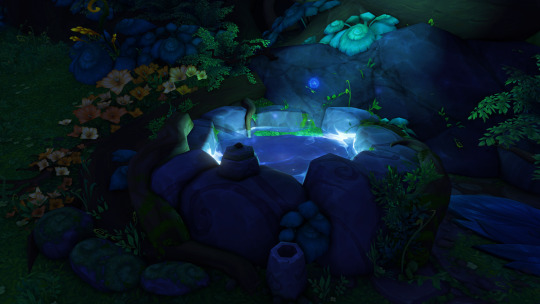
Water
The first, most notable link between Elune and the elements would be her thematic ties and manifestations of power within water. An iconic and central piece of Kaldorei culture is the moonwell: it is often the focal point of temples, and a place of respite in the wilds which restores mana, cleanses impurities, blesses armaments, purifies corruption, and even banishes maddened elementals. Dave Kosak, in his development of the Warcraft cosmology, describes the combination of spirit and water as one of the main vehicles for healing; both of which are linked to the outer ring of Nature. An old myth of the Kaldorei Empire described Elune sleeping inside of the Well of Eternity during the day, and rising into the sky as the moon each night. Today, moonwells are established through local wild spirits granting their blessing, a combination of natural and lunar magick, as well as a droplet of eternal waters from another purified well. All of these spheres together (spirit, water, nature, and arcane) encompass the very essence of Elune's moonwells.
Tears of Elune are one of the most recurring themes in relation to the goddess - seen in the pillar of creation, and lesser items scattered throughout the world. We do not know for certain how these tears form; however, there is an implication that they are a manifestation of Elune’s emotions, whether crying tears of sadness, or of joy. These remnants from the goddess seem to possess a myriad of properties the beholder can make use of: the Tearstone of Elune legendary ring has a chance to cast an additional regrowth on targets, Tears of the Goddess from the Hyjal raid slow the player’s falling speed, and Elune’s Tear can ease the symptoms of illness. Mu’sha’s Tears are gathered at the base of a waterfall in Highmountain, which are guarded by fiercely protective water elementals, to eventually be used during a ritual that allows us to witness the events of the War of the Ancients. Interestingly, these specific tears are said to “flow of their own accord,” entirely ignoring the rushing rapids that would normally carry away physical objects or other water currents; which may lend to the notion that Elune’s elemental manifestations are partially comprised of spirit. The Sisters’ Tear, born of Elune and the Winter Queen’s combined power, is yet another example of renewal and lifegiving springing forth from the goddess’s sorrow: which resulted in the growth of the World Tree, Amirdrassil.
Elune is described as having partial influence over the tides, a power that she shares with Neptulon, as evidenced by the Tablet of the Balancing Tides: "The whispers of Elune and Neptulon play on the tides, their words etched in stone are a tribute to the balance of their powers." There is additionally a brief archaeology quest in Throne of the Tides we can pick up from an ancient fountain. Delving into our historical knowledge from reading a Highborne Scroll fragment, we discover that the purpose of this fountain is to confer a blessing called “Waters of Elune,” which specifically increases our damage against the naga while inside the domain of Neptulon, further strengthening the alliance between the two. The goddess also seems to feel a responsibility, or at least have an interest, in purifying maddened water elementals. We see this demonstrated in Moon Priestess Tharill’s questline in Darkshore, who asks us to use a relic called the Orb of Elune; which has the power to soothe and permanently banish these beings back to their plane. This ultimately protects the elementals from the cycle of being resummoned, further manipulated, and driven to madness. As the orb was carried by Tharill just south of Auberdine, this may have been a prized and sacred relic of the town used in banishing angered elementals from the coasts of Darkshore. It would not be the first or only sacred artifact kept here, as Auberdine also once housed the Eye of Elune.
Elune’s aqueous blessings were also a crucial part in the battle of the Molten Front within the Firelands. It seems that somehow, the nature of Elune’s blessings can circumvent traditional interactions between elements. The very existence of a moonwell, or any body of water for that matter inside the scorching plane of Ragnaros, would reasonably evaporate. The fact that this one is able to withstand the extreme heat of the Firelands speaks to a high resistance, if not complete immunity, to the effects of fire. Ayla Shadowstorm explains that the moonwell’s waters can indeed provide some protection against flame, as well as bless the expedition’s food stores. Once the well is filled, small bushes and trees begin to sprout nearby that eventually bear eternal fruits which can be used indefinitely while inside the Molten Front. While it is unclear what role Elune plays in the existence of wisps, these spiritual beings are considered “perfectly suited” to banishing elementals (similar to the goddess herself) as seen in this quest where the wisps aid us in closing the portals of fire elementals.
In the tauren mythos of Eyes of the Earthmother, Mu’sha as she is called, is said to "dance with the waters of the tides," "flow out of shadow’s reach like water," and bind injuries with the powers of water and wind.

Fire
The satyr camp of Sargeron in Desolace, known colloquially as the Palace/Sanctuary/Cathedral/Temple of Elune, reveals an interesting relic that links Elune to the element of fire. Unearthed from the ruins of the temple here, there is a tall runestone monument known as the Ancient Vortex Runestone. It is said that the ancient Kaldorei “revered the gems created by this mystical object, claiming that they were gifts from the goddess herself. It was believed that they were weapons capable of delivering them from any enemy.” As we progress in the questline, we are able to make use of these gemstones, which summon forth a giant firestorm, whose power is strengthened “either through sustained worship of Elune, or charged by spiritual energies of the fallen.”
During the war against the scourge in Northrend, the settlement of Stars’ Rest converted their moonwell to house the liquid fire of Elune, an offshoot of traditional moonwell waters. The very nature of this substance seems to be an oxymoron, combining two opposing elements of fire and water into one. However, if we consider again Dave Kosak’s notes on the life-giving essence of spirit; he links spirit and water with healing, and spirit and fire with holy powers of retribution. The fact that Elune’s liquid fire encompasses spirit, water, and fire then becomes clearer in the goal of this quest: to pour it over the corpses of scourge-blighted animals and cleanse them of their corruption. This essentially combines Kosak’s ideas through healing their bodies and demonstrating a retribution against the unnatural state of undeath. This may also speak to the circumventing of traditional elemental interactions, as the liquid fire of this moonwell (assumedly) prevents the vessel from freezing over.
In Darkshore, a moonkin named Aroom requests our aid in cleansing their corrupted brethren. They task adventurers with slaying a ghost of their kind who wields a relic called Elune’s Torch. After retrieving the torch, Aroom creates a ritual bonfire with the flames from this item, which allows the corrupted moonkin to find rest in the afterlife and “return to Elune, finally.” It could be that these flames of Elune act as spiritual purification, essentially burning away the madness or corruption clouding the moonkin’s minds. The fact that they are able to find peace (after this torch is used to create a larger and more substantial bonfire) may indicate that Elune’s flame acts as a beacon of guidance for the dead, which allows them to more easily move on from the physical plane.
There is also a unique type of silvery blue and purple fire found in Kaldorei settlements, old ruins, and temples that is vastly different from traditional orange, red, and yellow flame. The most intriguing are the braziers found in Azsuna and Tel’anor of Suramar, a necropolis assumed to be abandoned by its groundskeepers. Yet, all throughout the area there are braziers still burning brightly as if just fed with wooden kindling. It is unclear how they are sustained, but this may reinforce the idea that it is not true fire in the typical understanding of the element, but a mixture of fire and spirit together.
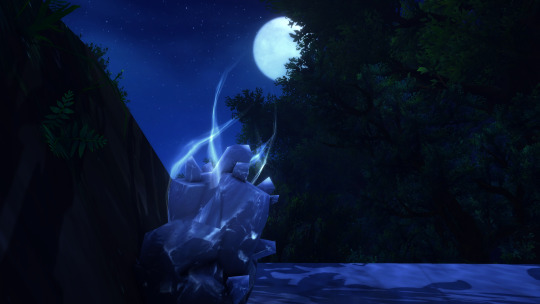
Earth
While Elune seems to be more distant from the element of earth than its counterparts, it is interesting to consider her manifestations that appear in traditionally earthbound mediums.
The first is Elunite Ore - ore in general being a naturally occurring rock or stone with valuable minerals inside. Elunite is described as being a fine material to work with, and directly blessed by Elune herself. The nature of Elunite is unclear; we do not know if it is an ore that is blessed by the goddess after its formation, or if Elune has a hand in its creation within the earth. It is not a usable material by miners and blacksmiths, perhaps implying that crafting with Elunite is a rare technique known only to select artisans, Elanaria (the questgiver) being one of them. It could also be that the privilege of shaping Elunite requires performing an act in defense of the goddess’s domain; as Elanaria tells us that in order to make our weapon, we must slay a satyr corrupting a moonwell, and defeat the shade of Elura who has cursed herself to guard her shipment of Elunite ore beneath the waves for all eternity.
The next earthly manifestations of Elune come in the form of gemstones, which traditionally find their origin from “deep in the earth, brought to the surface by explosions of molten rock.” Some are also “crystallized slowly from hot fluids and gases, formed from liquids filtered into cracks and pockets in rock, formed when rocks were heated and pressurized by earth movements, and recombined to form new, different minerals.” It is unclear whether Elunian gems are created similarly, or whether they are perhaps crystallized magic of some kind. As mentioned in the section of Fire, the Ancient Vortex Runestone was said to produce gemstones that Elune bequeathed to her followers here to defend themselves with. Additionally in Winterspring, there is an old altar that once housed a precious relic called the Gem of Elune that allowed direct communication with Her, and through which she “channeled her infinite wisdom.” In Outland, there are also rare jewels called Stars of Elune that can be prospected from various native ores, and dropped by random enemies.
In the Legend of Elun’Ahir, the goddess is said to be one who gifted Eonar with a branch of G’Hanir, a Mother Tree that once existed inside the Emerald Dream. After Aman’thul ripped it from the earth, its roots still grew below ground, nourished by Eonar’s tears: “Below ground, the roots fed upon the tears of Eonar and grew strong. The war was long, but in the end, the titans claimed victory. And Eonar was pleased, knowing Elune's legacy would endure. It is said that much later, as the world entered a new age, mysterious guardians arrived who dedicated their lives to protecting the roots.”
There are also several flowers said to be touched by Elune. One grows in the shadows of Duskwood, called Elune's Grace, which glows with the intensity of the moon and attracts wolves to its location. The flowers required to craft various Blossom Crowns during the Lunar Festival supposedly hold a strong connection to the goddess as well, imbued with a "solemn peace," "Elune's might," "happiness," and "great fortune." Myrael Lunarbloom also wields a staff whose flowers bloom during this time of year, greatly empowered by a moonwell pilgrimage ritual. She even says, "Flowers flourish under Elune's light. She was always known to cherish them."

Air
The Eyes of the Earthmother tells of the goddess’s early mythological origins, and her sphere of influence includes both water and wind. It seems that Elune (Mu’sha in this story) works with the wind most commonly as a means to communicate, and to deliver thoughts, words, and feelings. While the Earthmother slumbers, Mu’sha’s powers were said to be diminished, and she could no longer harness the winds' power since they “whipped up in storms and blizzards.” She is also described as “sharing secrets” with the winds, later sending upon them a plea to the Earthmother. Eventually, the Earthmother is able to find her way back to Mu’sha, because “the winds pulled at her hands, and guided her swiftly to find her Sun and Moon.” After the Earthmother’s sacrifice, Mu’sha pays homage to her by carrying her last words on the breeze for the tauren to hear, as well as setting the winds across the tides so that her voice could always be followed. Mu’sha’s favored weaponry was also said to be the bow and arrow, the efficacy of which is highly dependent on wind flow. Her movements are described as “quick as the wind,” and when her brother, An’she, is severely wounded, she calls upon these forces in an attempt to heal his injury: “Mu'sha tried to bind her brother's wound with water and wind, but no matter what she did, he continued to bleed.”
An in-game connection between Elune and the realm of wind is from a side quest in Darkshore just following the events of the Cataclysm. Sentinel Selarin, at the Auberdine refugee camp, leads the endeavor to eradicate the Twilight’s Hammer wind elementals overtaking the ruins of the town. An arduous process that requires an intricate solution, as the Twilight’s Hammer can continuously resummon the elementals at their command. In order to put an end to this, the elementals must be “slain;” after which we take their bracers, thought to be physical bindings anchoring them to this plane. The way to stop this cycle once and for all is to place the bracers into a moonwell. This act is said to not only prevent the elementals from being resummoned, but completely destroying the bracers as well. While this is not said to “soothe” them like the Orb of Elune, this seems to accomplish the same goal of freeing the enslaved elementals and the remaining Kaldorei.
While not a manifestation of elemental power per se, Elune’s influence upon the winds is also demonstrated in priestesses who channel her power through song; as well as relics like the Chimes of the Moon in Tel’anor: “The Sisters say that Elune sings a song, notes pure and beautiful. The Chime does not ring often, but when it does it is the same note as the one She is singing.” During the War of the Ancients especially, the strengthening magic utilized by the Sisters was invaluable to the war effort, notably through battle chants: “Then, another welcome surprise—chanting came from the center of the advance. The Sisterhood of Elune, resplendent in their battle armor, strengthened the fighters further. Day might have held precedence at the moment, but the priestesses’ rhythmic singing literally fed the nocturnal warriors. It was as if the moon herself suddenly hung over the host.” (Demon Soul, Ch. 8)
While we may think of this magic as under the strict purview of the elementals, it has been said that "Elune’s true nature is not fully understood," and the breadth of her power and influence may be even more vast and complex than initial impressions.
#longggggg long post#i'm so sorry#anyways#cool instances of Elune manifesting in elemental type things tm#world of warcraft#wow#elune#elements#cosmology#spirit
23 notes
·
View notes
Text
Cover Star|A sincere conversation with Rebecca Ferguson, from "Mission: Impossible" to "Dune": "If there was a pause button in life..."
Over the past few years, we've been immersed in the eyes of Rebecca Ferguson. She is "Lady Jessica", the mother of Paul, the protagonist of "Dune 2", and "Agent Ilsa" in the "Mission: Impossible" movie series. Her charm that is not limited by frames makes every character more real and three-dimensional.
In the cold winter, we flew to London to meet Rebecca Ferguson. There was an especially warm smile in the studio. She had a sense of relaxation, sitting casually on the stacked tires, but she was also like a small flame, burning the wonderful thoughts in her mind. In front of the camera, she carefully stretched her figure and carefully selected the look she liked. With a mini racing track laid out on the ground, Rebecca Ferguson created a different sense of tension and story.
From ballet to stunts
We will always remember that in 2014, Rebecca Ferguson hid the fact that she was afraid of high-altitude stunts while filming "Mission Impossible: Runaway Nation." Tom Cruise was surprised later, "She never told anyone! She trained for it and completed it full on" However, in the face of these past events, he asked her if she agreed that she was a person who "decided to do whatever she did." The kind of person who arrives? Rebecca Ferguson replied that she doesn’t like to oversimplify or emphasize her own behavior. “I also don’t like to have a predetermined impression of myself because it may lead to self-aggrandizement (laughs). I think most people I work with also have the same traits. ! When they want to achieve something, they always give it their all, not at the expense of others. I hope it’s a process that’s kind, considerate, and exciting.”
Born in Sweden to a British mother, Rebecca Ferguson graduated from Adolf Fredrik's Music School, a well-known music school in Stockholm. At the age of 15, she participated in the soap opera "Nya Tider". She also studied ballet, jazz and funk at the Royal Swedish Ballet School, tap dance, etc. Her diverse exploration of art since she was a child seems to have given her an "artist" eye, and perhaps a bit of an artist's temperament. Her heart is like a jumping note, and she can always talk about any topic; her attention to details also injects countless inspiration and boldness into the photos.
life pause button
After Rebecca Ferguson worked in Sweden for more than ten years and gave birth to her first child, her name gradually became known to the world. In 2013, she played Elizabeth Woodville, the controversial queen of King Edward IV of England during the Wars of the Roses, in the BBC historical drama The White Queen. This English-language debut earned her a Golden Globe nomination. Since then, she has become one of the busiest stars in Hollywood. The third film in the Mission: Impossible series she starred in premiered in 2023. For months, fans discussed the poignant battle of her character Ilsa Faust; the subsequent dystopian series starring Rebecca Ferguson The first and second seasons of "Silo" premiered on Apple TV+, during which time the craze for "Dune: Part 2" broke out. Compared with the growth story of Timothée Chalamet, we seem to be more often deeply attracted by the mystery, elegance, beauty and strength (and exquisite veil!) of the protagonist's mother Lady Jessica. Since the battle of wits in the first movie The fierce physical fight is still unforgettable!
Recently, she announced her participation in the movie version of "Peaky Blinders", co-starring Cillian Murphy, the protagonist of the British period crime drama. Ask her what else she wants to challenge in her career? "There is nothing I want to change, but I will always think about challenges and chasing dreams. I have never been on the stage, and I also want to do some theater work. This is my biggest wish now, and it may also be my biggest fear. !”
The theme of the February issue of "Harper's BAZAAR Taiwan" is about F1 racing and speed. I am curious about what she hopes to "fast forward" to the ending experience? "Absolutely not! I don't want to fast forward at all! I think time goes by fast enough already. If there was an option to rewind, I would rather have that - or press the pause button - to pause time and feel my surroundings. Maybe we can revisit some of the moments to let us know we’re not at the end yet.”
Naughty, Libra, maternal, mobile, practical in building dreams, artist, etc., we wrote a character sketch of Rebecca Ferguson; and then through her sincere answers, there was an interesting collision of souls.
Fashion is a language
Rebecca Ferguson (RF): I don’t know, maybe both? I think my answer is, we learn over time. We learn by making mistakes, and we grow by listening to and observing others. At the same time, I like people and I like to communicate! If the other person is interesting and smart and makes me feel smart too, the conversation is interesting, or if the other person is challenging in some other way, that's also engaging. But I'm not always witty, sometimes I'm naughty and sometimes even rude, which isn't really good.
HB: You are a fashion icon on the red carpet, but we also want to know about your personal style and experience. Has your daily fashion changed because of the crazy costumes you wear? Or has it changed as a result of becoming a mother and entering a different stage of life?
RF: I think life is fluid and we change with it. What's important to me is comfort, although not necessarily to the standards of fashion. But fashion is in some ways an expression of identity and how we want to be seen; on certain occasions, it is also important to present yourself in a certain way. But on other occasions, like when I go to work, I usually wear fitness clothes with a big hat and T-shirt on top. When the weather is cold, it’s more casual. Even so, I will wear cool sneakers and some very colorful socks! I still left my mark, I was still me. Of course, working with different stylists has also changed me, some experiences have been great, but others have also made me realize what doesn't work for me. Fashion is really like a language, right? For example, working with my current stylist, Tom Eerebout, he takes me into some areas that I really like, and the whole process is wonderful. I discovered that I loved fashion and expressing myself through clothing and accessories.
HB: In early interviews you talked about a childhood full of creativity and memories, such as dancing, music, modeling, and gymnastics. Can you share with us how you explore your passion? Have these experiences shaped who you are today?
RF: I explored my passion through the job opportunities I was offered. I will use my past physical experience if needed! For example, when I was filming "Mission: Impossible," those dance and physical training helped me shape the character. As for another question, I think everything in life influences everything; everything we do is filling up the "backpack in life", whether it is good or bad experiences, and these experiences ultimately shape us.
HB: Can you share with us what is the best and worst thing that has ever happened to you in the entertainment industry?
RF: To be able to be a part of the entertainment industry, have a place here, and have a workspace to express myself, to be able to do all of that consistently; and to be able to make enough money to take care of myself, take care of my family (more than put food on the table), work It also makes me feel fulfilled and satisfied...it's really great. Of course, there are a lot of not-so-good things, but I'm at a very good peak at the moment, so I prefer to emphasize the positive things.
21 notes
·
View notes
Text
⊹𝑨𝒓𝒓𝒂𝒏𝒈𝒆𝒅 𝒎𝒂𝒓𝒓𝒊𝒂𝒈𝒆๋ ࣭

ꜱᴜᴍᴍᴀʀʏ: ɪᴛ'ꜱ ᴛʜᴇ ꜱᴇᴄᴏɴᴅ ᴀɢᴇ ᴀɴᴅ ᴛʜᴇ ᴇᴀꜱᴛᴇʀʟɪɴɢꜱ ᴅᴇꜱɪʀᴇᴅ ᴛᴏ ᴇɴᴅ ᴛʜᴇ ʜᴀᴛᴇ ʙᴇᴛᴡᴇᴇɴ ᴛʜᴇᴍ ᴀɴᴅ ᴛʜᴇ ᴇʟᴠᴇꜱ, ᴀʟᴛʜᴏᴜɢʜ ᴛʜᴇ ᴏɴʟʏ ᴏɴᴇ ᴡʜᴏ ᴀᴄᴄᴇᴘᴛᴇᴅ ᴛʜᴇɪʀ ᴘʀᴏᴘᴏꜱᴀʟ ᴡᴀꜱ ᴄᴇʟᴇʙʀɪᴍʙᴏʀ, ʟᴏʀᴅ ᴏꜰ ᴇʀᴇɢɪᴏɴ. ᴛʜᴇ ᴇᴀꜱᴛᴇʀʟɪɴɢꜱ ᴏꜰꜰᴇʀ ᴡᴀꜱ ᴀɴ ᴀʀʀᴀɴɢᴇᴅ ᴍᴀʀʀɪᴀɢᴇ ʙᴇᴛᴡᴇᴇɴ ᴛʜᴇ ʟᴏʀᴅ ᴀɴᴅ ᴛʜᴇɪʀ ᴍᴏꜱᴛ ᴘʀᴇᴄɪᴏᴜꜱ ᴡᴏᴍᴇɴ ᴛʜᴇʏ ʜᴀᴠᴇ, ᴛʜᴇɪʀ ɪᴍᴍᴏʀᴛᴀʟ ʟᴀᴅʏ.
ᴀ/ɴ: ᴛʜᴇ ᴇᴀꜱᴛᴇʀʟɪɴɢꜱ ɪᴍᴍᴏʀᴛᴀʟ ʟᴀᴅʏ ɪꜱ ᴍʏ ᴏᴄ, ᴏᴛʜᴇʀ ᴛʜᴀɴ ᴛʜᴀᴛ ᴇᴠᴇʀʏᴛʜɪɴɢ ʙᴇʟᴏɴɢꜱ ᴛᴏ ᴛᴏʟᴋɪᴇɴ. ᴛʜᴇ ɪᴍᴍᴏʀᴛᴀʟ ʟᴀᴅʏ ɪꜱ ᴀ ʜᴜᴍᴀɴ ᴡʜᴏ ꜱᴏᴍᴇʜᴏᴡ ᴅᴏɴ'ᴛ ᴀɢᴇ ᴀɴᴅ ᴛʜᴇ ᴇᴀꜱᴛᴇʀʟɪɴɢꜱ ᴋᴇᴘᴛ ʜᴇʀ ꜱᴇᴄʀᴇᴛ ꜰʀᴏᴍ ᴛʜᴇ ᴡᴏʀʟᴅ ʙᴇᴄᴀᴜꜱᴇ ᴛʜᴇʏ ʙᴇʟɪᴇᴠᴇ ꜱʜᴇ ʙᴇʟᴏɴɢꜱ ᴛᴏ ᴛʜᴇᴍ.
ᴡᴀʀɴɪɴɢꜱ: ᴄʜᴀʀᴀᴄᴛᴇʀ ɪꜱ ʜᴜʀᴛᴇᴅ, ᴀʀʀᴀɴɢᴇᴅ ᴍᴀʀʀɪᴀɢᴇ?, ᴇɴɢʟɪꜱʜ ɪꜱ ɴᴏᴛ ᴍʏ ʟᴀɴɢᴜᴀɢᴇ.
ᴄʜᴀʀᴀᴄᴛᴇʀꜱ: ᴄᴇʟᴇʙʀɪᴍʙᴏʀ x ᴏᴄ

During the Second Age, a historic opportunity for peace arose between the reclusive Elves of Eregion and the Easterlings, a fierce and distant people. Mired in a bitter history of conflict and animosity, the chance to bridge the divide between them seemed almost unattainable.
Yet, amidst the whispers of diplomacy and the clamor of war drums, one brave soul dared to defy convention and embrace the possibility of unity. Celebrimbor, the esteemed lord of Eregion and renowned craftsman, saw in the Easterlings a glimmer of hope for a brighter future. And when the proposal of an arranged marriage between himself and the most treasured woman of the Easterling tribe was put forth, he accepted, determined to pave the way for understanding and cooperation.
Little did Celebrimbor know that the mysterious lady in question was none other than an immortal human, kept hidden from the world by her people for centuries. The Easterlings saw her as a priceless asset for their peace. And as she was reluctantly thrust into the intricate web of political intrigue and ancient traditions, she found herself torn between duty and desire, between the expectations of her people and the stirring of her own heart.
The wedding was held in Eregion, specifically in Celebrimbor palace. they danced for the first time as a husband and wife. all eyes were on them, some were admiring, while some were judging. as they danced, Celebrimbor noticed her empty expression.
✦ Celebrimbor: you seem to be distressed my lady, do I make you uncomfortable?.
The woman did not lift her face, she stared at anything else except his face.
✦: no my lord, you do not.
her words seemed empty.
✦ Celebrimbor: well then, would you please look at me?.
she can feel her people's eyes on her, she has to act good. her eyes are now locked with his for the first time since they met.
✦ Celebrimbor: you are unhappy with this marriage, I can see that in your eyes.
✦ : no my lord, I'm happy, you are a fine lord and it's an honor to be your bride.
He can tell that her words were forced and not genuine. he chuckles softly at her words.
✦ Celebrimbor: did they tell you to say this?.
she did not answer this time and lowered her gaze again. a deep sigh left his throat. he ended the dance and led her back to their seats.
Time skip
as is known, the husband must take his wife to their shared chamber and seal their reunion forever. the woman prepared herself mentally for this. as they entered their now shared chamber, Celebrimbor showed her everything in the chamber, after that, he excused himself saying that he will spend the night in his forge.
The woman left standing in the middle of the room, not knowing what just happened or what to do now. did he perhaps don't want to share a bed with her?. many dark thoughts roamed inside her brain, that even if she is immortal he don't desire her because she is a human and he is an elf.
✦: no, he is an elf, elves don't bond and marry with anyone, they only marry once and to their true love, not this.
she held her head in her hands, trying to stop her nervousness.
✦: I'm safe here, they won't hurt me, they can't reach me. I'm safe.
tears threatened to leave her eyes but she quickly wiped them. her eyes then noticed a balcony door was slightly opened. her feet dragged her there then sat down in front of it, eyes fixed on the moon. her breath calming slowly.
✦: maybe this is for the best, he won't desire me since I'm not an elf and I get to be away from my people. I will lock myself here if I have too.

#elffics๋ ࣭ ⭑#celebrimbor x reader#celebrimbor#tyelpë#silm fic#silmarillion imagine#silmarillion x reader
68 notes
·
View notes
Note
Hey, really love the writing😍 I was perhaps wondering if it were possible to do a Jenson Button x reader x Fernando Alonso. (Age gap with a young reader like 21years old)
Where the reader is Jenson's girlfriend and Jenson takes her along to a grandprix. After the race while Jenson's busy with interviews the reader walks around the paddock and runs into sweaty, sexy Alonso and he flirts with her FULLY aware that she's Jenson's girlfriend.... And yea some romantic drama perhaps... I fully understand if you're not able to do it though, it was just a suggestion. Thank you for your awesome work❤️

Hands close and teammates closer (JB22 x FA14)
Jenson Button x f!reader x Fernando Alonso
Author's note: Thank you so much for the support, it means the world to me! I am so sorry this too way too long to write. I hope you like it and enjoy it as much as possible.
Also Jenson admitting publicly that Fernando is his man crush, is my new Roman Empire. What do you think? Will Nando go to Mercy along with George for the 2025 season?
Warnings: angst, jealously, possessiveness,
Summary: requested
Monaco has to be one of my favourite circuits on the calendar. And trust me it is not because of the luxury and mamma mia vibes its feeling radiates. What I love, is the fact that I can get lost in the streets of the crown jewel and still be able to guide myself through the lines of the circuits and the fierce sound of engines.
Since this is Jenson's final year in Formula One, I have decided to follow him along in all the races taking place in the calendar, so that this historic season finishes off in a smooth but memorable way. What better feeling than witnessing twenty men in front of your eyes racing hard core in the fastest vehicles on earth and one of them being your boyfriend, right?
With all the eyes being on focused on the two silver arrows that are the championship contenders as well, no one really pays attention to Mclaren's lack of luck this season. Multiple engine failures, pit stop difficulties, strategy errors. It hasn't been the most perfect season the team has had.
Whether it is first, second or even twentieth place, for me, supporting Jenson through thick and thin is my priority. I have witnessed his glory days but that will not stop me from enjoying watching him fight for points in the championship to help the team get back on their feet.
What pleased Jenson even more was when both he and Fernando were into the points after a difficult races. This helped them gain some confidence agains the other midfield teams. Although Jenson wasn't very pleased when Fernando was always following me and him during the race weekend at the paddock. Well, it was mostly me he was following.
Fernando has just gotten out of a long term relationship and seeing his teammate in a happy and healthy one, wasn't boosting his mentality very much. It was the exact opposite. Jenson couldn't really be able to help him given that he hadn't been through such a difficult heartbreak ever.
At first, everything was innocent and friendly. Me and Fernando were casually chatting about our daily lives, his as an F1 driver and mine as an English Professor. Always laughing, making jokes and freely giggling with one another.
Then, when the Spanish Grand Prix arrived and all the drivers were waving at the fans from the paddock and grandstands, everyone was cheering and shouting Fernando's name, given he was the national hero and as he was waving at the audience, he grabbed my waist and held me against his side, as if I was his lady.
That night, Jenson was about to murder his own teammate for the first time. Because the downfall didn't start there. At the Austrian Grand Prix, when Fernando had an unfortunate DNF due to an engine failure, he rushed angrily back to the garage and everyone was trying to console him.
After a few moment, one of the mechanics asked me to go and seek him, given that they were told he wasn't in a position to talk to anyone else but myself, which was very odd.
Austrian Grand Prix flashbacks
"Hey Nando. I am so sorry for the malfunction." I open the door to his driver's room slowly, given that I wasn't aware if he still had his race suit on.
"Come in, Y/N, and thank you. But you know, it's never easy to retire the car after having a good race." Fernando still hadn't looked at me. It is a gutting feeling for a champion to retire so unfortunately.
"I am sure a win is close. One final push and you will be back on the top step of the podium. I have no doubts." I tried to sound as positive as I could, although I knew deep down Mclaren was not capable of winning any race or barely making it to the podium.
"You are the only one who believes in me anymore, y/n. I do not know how to repay you." He got up and took my hands into his, caressing them softly. I really wanted to pull my hands away from his grasp, but instead I made small steps towards the door.
"Jenson believes in you as well, the whole team does. Just do not lose faith in yourself."
"Don't try and give them your credit sweetheart. You are the only one." Before I could react, Fernando landed a kiss on my cheek but I quickly removed my body away from his and walked out of his room.
End of flashback
When I told Jenson, Fernando kissed me he was fuming. Obviously he asked me if I kissed him back, but I denied it. Because I hadn't kissed him, I simply ran away. If there was a hidden camera on Fernando's room I would use it as proof.
At the next race in Hungary, Jenson was still very angry at Fernando that he willingly pushed him off the track and lost 5 places at the beginning of the race, which led to Fernando getting P15 by the end of Lap 1.
Mclaren mechanics were disappointed at Jenson's behaviour. Why would he push his own teammate off the track. Rumors started spreading around the paddock that Jenson was plotting against Fernando and trying to sabotage his races so the team would take into account his bad performances and eventually fire him.
Jenson finished the race in a worthy fourth place, whilst Fernando in P11. Very mixed feelings for the results given that this was the best Fernando could do with a damaged and already underperforming machinery.
Interviewers were flooding Jenson with questions about the first lap incident, what was the actual cause, if he had done it on purpose or it was an accident. All the replied was "I didn't want to lose my position".
As if there wasn't enough drama with Nico and Lewis in the paddock and on the track, now Fernando and Jenson were fueling the media with the answers each were giving to the press.
"I needed to guard my position in order to gain more places"
"I was trying to avoid the cars behind me and eventually fell."
"I did not mean to push Fernando. Clearly driver's error that he went off the track."
"I don't know what Jenson was trying to achieve but he clearly had things going his way today. Pushing off his own teammate. Unbelievable."
"If he thinks I did it on purpose, fine by me, but I know my worth and I am aware of the mistakes I do. First lap incidents occur very often, if he doesn't already know that."
"He is a world champion, like myself. Why is he behaving like we are in go-karts? We should work as a team."
After the interviews, Jenson was called in from McLaren so he could explain himself about the incident and try to save his reputation from getting wrecked because of what he said in the press.
When I walk away from where I left Jenson, I am met with a full blown red, still in his overalls and sweaty Fernando. He is very angry and you can tell from the way his knuckles have gone white.
When he raises his head and looks at me, somehow all the anger that had possessed him, seemed to wash away with a smile covering the pain.
"I am so sorry Fernando, I have no idea why he did so. This all seems ridiculous. I will try to reason him."
"No need cariño. I will take care of him. I know exactly why he is doing so."
What did Fernando knew that I didn't? What was going on, I thought to myself as his eyes were getting shadier and lustier. The use of the pet name made me feel uncomfortable as he was crossing a line that shouldn't have been crossed.
"Why is he doing it then?"
"Because he is clearly jealous. Can't you see it? You are always coming to me in the end."
"I care about you Fernando but not in the way you imagine."
"That is why you let me kiss you the other time in Austria? I know what you are trying to do sweetheart. If you want to be with me just say it."
I was stunned by his statement. From where exactly did he extract this conclusion that I wanted to be with him. I was so disgusted by his saviour. He knew I was Jenson's fiancee. I loved him dearly, so why on earth would I want t be with another man?
I didn't calculate my actions and as Jenson was coming out of the office, my hand instantly landed on Fernando's smirking face. The slap echoed in the room and Jenson's eyes widened enough to pop out from anger.
"I love Jenson so much. There is a reason why I gave up my job to be with him and travel around the world. I will marry this man and I will not allow anyone to interfere in our relationship. I don't know from where you drew the conclusion that I am in love with you, Fernando. I am sorry but you crossed the line."
I ran away from the room and Jenson was following me along, trying to catch up on what was had happened. Tears were storming down my cheeks and I was all flushed up and tensed. If Fernando marked the end to mine and Jenson's relationship I would never forgive him.
"Darling please wait up. What happened?" Jenson's soft voice stopped me on my tracks. I turned around and he was met with a distraught version of myself that he had not met before.
Jenson took me into his arms lovingly, kissing the top of my head, shushing me to calm down, whilst caressing my back gently. I was so shaken by what Fernando had accused me. How could he?
"Talk to me dear. What did he say to you?" His voice was calming me down as he knew I wasn't to blame for what he saw.
"Fernando accused me of hitting on him and wanting to be with him instead of you, which in no way is true." Jenson didn't reply to what I had said. He was silent but tightened his grip on me.
"Say something, anything. I promise to my life that I did not do anything of what he said. Please trust me." I was begging him to utter a single word.
"I am trying not to go back there and chop of his dick. I know you would never do anything to harm our relationship baby. I believe you." He looked deep into my eyes and my heart instantly softened.
"I will stop being in the garage if it means avoiding him at all costs. I will go into the grandstands. I don't mind really." I offered but Jenson instantly rejected it.
"Are you insane? I will simply ask Daniel if he can take you in with him and Max. I trust them blindly, plus you will have much more fun over there." Daniel and Max, the super dynamic duo everyone had been talking about. They are two very funny guys and Jenson has a very good relationship with Daniel.
"I would never want my future wife to not be in the paddock supporting me. I love you immensely and I would hate not having you around, seeing your beautiful face and having someone encouraging me."
"I love you with all my heart Jenson. I am your and only, forever. Thank you for taking care of me. Even in a different garage, I will cheer for you. Even if that means silently so the Red Bull guys don't kick me out."
"Everyone loves me darling, I am sure they won't mind. But don't root very much for Daniel cause he is a womaniser" He winked at me and I laughed with my head hidden inside his chest.
#jenson button x reader#fernando alonso x reader#jenson button#fernando alonso#fanfic#jenson button x you#fernando alonso x you
107 notes
·
View notes
Text
Keisei Suikoden: Genderbent Water Margins
This is probably Part 2 of the "Obscure Vernacular Novels Spotlight" series. Dunno if there's gonna be a Part 3, because most obscure novels stay obscure for a reason. Which is often formulaic boredom. And I'm only picking out the fun ones.
(Also, my main interest is still Ming-Qing vernacular novels, but since I'm doing a final project about Keisei Suikoden for this semester's class, I may as well use the post as Draft 0.)
...
"Is this the Edo Japan equivalent of FGO making historical figures and deities into anime girls?" I thought, when I first came across a Chinese summary of the novel several years ago.
Then I learned that the author, Kyokutei Bakin, has indeed appeared in FGO as an anime girl.

As the title suggests, this fan novel of Water Margins has made all the male 108 heroes into heroines, and the female characters into guys...but the changes go further.
Specifically, Bakin has localized the entire setting, rewriting the storyline so that it took place in Kamakura Japan instead. (Hey, it's even contemporary to Northern Song!) Kinda like how Konami's first Suikoden game put the 108 heroes into a medieval fantasy setting.
Which means:
All the 108 characters got their unique Japanese names, sometimes sharing one or two characters with their original inspirations but not always.
Daoist characters became Shinto priestesses, yamabushi, and onmyoji.
Beef dishes that appeared in the original novel were replaced with poultry and fish because Edo Japan had a ban on livestock meat.
The Genpei War and other rebellions in its aftermath were featured in the backstory of a bunch of female bandits, who belonged to defeated clans, and many of the 108 heroines were associated with the Minamoto Clan.
Almost every character got genderbent. Which means the damsels in distress from the original novel become bishonen in distress, female bandits would kidnap men and force them into marriages, etc.
The rough outline of the story goes like this: an arrogant female official, while trying to find the famous priestess Murokai (fem! Heavenly Master Zhang) in the Kumano mountains to dispel a plague, released the 108 vengeful ghosts of unmarried courtesans mentioned in the Manyoshu anthology, who reincarnated into our 108 heroines.
After a timeskip, in the capital, the Shirabyoshi dancer Kamegiku (fem! Gao Qiu) has gained the favor of Emperor Go-Toba, both of whom were real historical figures.
During his reign, women skilled in various martial arts were selected to train in the Female Warrior Training School, and after offending Kamegiku, one of the head trainers, Ayaosa (fem! Wang Jin) was forced to flee with her aging mother.
During their escape, she encountered the spunky tomboy daughter of a village chief, Fusenryu Komorode ("Komorode the Diving Dragon", fem! Shi Jin), and taught her the eighteen martial arts after defeating her in a duel...
We then got to Otatsu of Hanagara (fem! Lu Zhishen), my favorite of the genderbent characters——A plump, dark-skinned lady with a fierce temper and love for sake, able to effortlessly move a 45 kg mortar around.

She became a fugitive after she killed the mean usurer widow and salted fish vendor, Kaina, with a single punch, to save the male courtesan Yasanosuke and his mom.
Then she was made a Buddhist nun and took on the name Myotatsu, but got expelled from her first temple for acting exactly like the original Lu Zhishen: getting drunk and eating meat, fistfighting a Jizo statue outside the temple gate and bringing the entire small shrine down, and beating up the nuns who tried to stop her.

"I'm adept at explaining the nature of cause and effect: Fuck Around and Find Out." ——Myotatsu, right before rescuing the village head's pretty son from a forced marriage to the local bandit queen
The novel does have a main plot: while Kamegiku was playing the temptress in Kyoto, Hojo Masako ruled as the "Nun Shogun" in Kamakura, and had essentially usurped the Minamoto Clan by placing her son, Yoriie, under house arrest and later assassinating him.
Thus, instead of robbing Cai Jing's birthday present, the 108 heroines were kidnapping Princess Sanze, the youngest daughter of Yoriie, to protect her from the Hojo regents and restore Minamoto control.
Sadly, we don't know how the plot concludes.
Bakin had gone blind in his old age, relying entirely on his daughter-in-law to transcribe his oral accounts, and since he was focused on finishing his most famous epic novel, Chronicle of the Eight Dogs Heroes (Nanso satomi hakken-den), Keisei Suikoden had taken a backstage and is never finished.
Some highlights:
-Sakurado of Torano-o (fem! Lin Chong) got fucked over because Kamegiku wanted to take her husband for herself. Her husband, Nansei, is a pretty twink monk and one of her disciples. He's timid, delicate, and has no interest in women, but loved Sakurado platonically and was in turn supported by her, who never looked down on him.
-Fushishiba (fem! Chai Jin), a.k.a. Oritaki no Sho, is descended from a member of the Taira Clan who owed a debt to Yoritomo, and was granted various honors and titles after the war.
-fem! Chao Gai's name is Kocho, which translates literally to "Little Butterfly". It might be a pun, since Chao and Cho sound kinda similar. And yes, she did lift an entire stone pagoda and carry it to her village to protect the villagers from the local yokai.
-Fittingly enough, "Sasuno Miko Medogi" (fem! Gongsun Sheng) is an onmyoji of the Abe lineage, who can manipulate Shikigami to summon winds and clouds.
-Oohako (fem! Song Jiang) murdering male! Yan Poxi is...surprisingly cathartic, not gonna lie. For context, Yan Po was not genderbent, but she abused Oohako's generosity to try to set her up with her son, a Joruri actor named Gidakichi, in an attempt to leech off her money.
-And while she's unwittingly offering patronage to their performances out of social obligation, Gidakichi was having an affair with her assistant, Adako (fem! Zhang Wenyuan), and being a stain on her reputation.
-After a very awkward and uncomfortable night at their house and Gidakichi being a creep to her, she accidentally left a pouch containing Kocho's letter of gratitude (because she alerted them to an incoming arrest) in their bedroom.
-Gidakichi found the letter and tried to use it to blackmail her into not only approving his marriage to Adako and covering the full expense, but also giving him the 300 gold mentioned in Kocho's letter (a gift she rejected).
-At which point she finally had enough and stabbed the guy to death. As you can see, the plot beats are mostly the same, but I like it better than the original.
-Why? Because 1) Yan Po's intent to leech off their patron is made a lot more obvious, and 2) instead of Yan Poxi (understandably) having no intention of sleeping with Song Jiang due to his cold neglect, and Song Jiang getting pissed at her for that?
-The dynamic is reversed. Gidakichi had no love for Oohako, and the feeling was mutual. Yet when she was pressured into spending the night in the same room by his mom, she was the one who kept a polite distance while he tried to force himself on her.
-Takeyo (fem! Wusong) is said to be 6 ft tall, with a dignified appearance that resembled the famous Tomoe Gozen from the Tale of Heike. Before she met Oohako, though, she was also short-tempered and prone to violence.
-Because Japan doesn't have tigers, the tiger Takeyo killed was a tiger cub gifted to the local lord by emissaries from Joseon Korea, which had escaped captivity upon reaching adulthood.
-Just like Wu Song, she avenged her sister, Butayo's murder at the hands of Kiresuke (male! Pan Jinlian) the abusive freeloader husband and his mistress, Okei of Seimonya (fem! Ximen Qin).
-Not gonna lie, the original Pan Jinlian and her Plum in the Golden Vase incarnation are both fascinatingly terrible people. But, just like Gidakichi, Kiresuke managed to outdone her through sheer creep factor during his failed attempt at seducing Takeyo and pinning the blame on her.
-Bakin generally tried to tune down the gore and cannibalism in Water Margins, as well as the slaughter of innocents and random passersby. Even Rikiju (fem! Li Kui) is slighty less of a indiscriminate murderhobo, and the targets of her killing spree were limited to samurai guards.
-That said, they still killed the corrupt official Ikken (Huang Wenbing)'s entire family by setting fire to his mansion, and preserved his head in a jar of sake after Rikiju killed him.
-Instead of receiving the three divine scrolls from the Mystic Lady of the Nine Heavens, Oohako received a single scroll from Benzaiten.
-Because of the aforementioned lack of tigers in Japan, Rikiju killed 4 giant "mountain dogs", a.k.a. Japanese wolves with unusual stripe patterns on their fur, after they devoured her elderly mom.
Final Thoughts
I'm not a fan of most genderbent AUs because oftentimes, it doesn't add anything meaningful to the original premise, or alter the character personality too much to the point of losing all resemblance to their counterpart.
Keisei Suikoden, however, is a pre-modern example of a genderbent adaptation done well.
The heroines are as badass, colorful, and violent as their male counterparts, the entire premise has been localized in a manner that's both funny and interesting, and the rewrite + deletion of certain story beats have actually removed many elements of Water Margins that do not sit well with a modern audience.
Also, I'll totally play a Keisei Suikoden RPG game, if the heroine designs stay true to the novel and they aren't all made into pretty anime girls.
A two -volume English translation can be found on Amazon, together with the Chronicle of the Eight Dog Heroes. There's also a free digital scan of the original Japanese print by the Harvard-Yenching Library.
#chinese literature#water margin#outlaws of the marsh#shuihu zhuan#FGO#fate grand order#kyokutei bakin#japanese novel#genderbend#japanese literature#suikoden
22 notes
·
View notes
Text

A Bold Twist on History: Why My Lady Jane is a Hidden Gem in the World of Fantasy
My Lady Jane is a defiant breath of fresh air in the world of historical fantasy, embracing its bonkers nature with unapologetic enthusiasm. This series takes the rulebook of realism, tosses it out the window, and instead opts for a wild ride that blends history, fantasy, and romance into one delightful package. The show doesn’t just flirt with the boundaries of reality; it gleefully dances right past them, making a Black man the King of England and introducing shapeshifters as part of the social fabric. This bold move pays off beautifully, inviting viewers to suspend disbelief and simply enjoy the ride.
What sets My Lady Jane apart is not just its entertainment value but its sharp wit. The protagonists are a joy to follow, with Jane and her fellow female characters serving as the true heart of the show. Jane herself is fantastic—her earnestness is both endearing and occasionally irritating, but always compelling. Surrounding her are standout characters like her cunning, sex-positive mother, Lady Frances, and her fiercely independent sister, Lady Margaret, who exudes a strength and determination that would give even Lady Lyanna Mormont a run for her money.
The series doesn’t just rely on its characters to make an impact; it excels in world-building and plot twists, all presented with a satirical sense of humor. The tone is a unique blend of modern feminism and historical toxic masculinity, creating a fresh take on the period drama genre. It’s a show that doesn’t shy away from revising history, much like Dickinson or The Great, and in doing so, it crafts a narrative that feels both contemporary and timeless.
However, the show isn’t without its faults. At times, the blend of genres and tones may feel jarring to some viewers, and not all of the humor lands perfectly. The pacing can also be uneven, with some episodes feeling slightly stretched while others race through pivotal moments. But these are minor quibbles in an otherwise delightful series.
For those who enjoy a mix of romance, action, and wit in their shows, My Lady Jane delivers in spades. The chemistry between Emily Bader and Edward Bluemel is nothing short of magnetic, their love story evolving from enemies to lovers with a perfect balance of spice and sweetness. Their portrayal of Jane and Guildford is so compelling that you can’t help but root for them, even as they navigate the treacherous waters of political intrigue and personal growth.
The show’s historical twists add tension and excitement to the narrative, making it more than just a simple retelling of history. It’s a femme-centric romp that flips the script on traditional damsel-in-distress stories, showing what happens when women take control and defy the patriarchal constraints of their time. My Lady Jane is outrageous, audacious, and delightfully bawdy—a show that isn’t afraid to be dirty and daring.
That said, this show might not be for everyone. Fans of more traditional period dramas or those who prefer their fantasy with a bit more realism may find the show’s irreverence off-putting. But for viewers who appreciate a fresh, bold take on history with a heavy dose of humor, My Lady Jane is a gem.
Although My Lady Jane was one of the best-reviewed new shows this year, it sadly failed to find a broad enough audience. The series received a 91% critical approval rating on Rotten Tomatoes, yet it never landed on Nielsen’s Top 10 weekly streaming rankings for originals. Despite the initial online buzz, it didn’t translate into enough viewers, leading to the show’s quiet exit.
In my opinion, insufficient marketing and the overshadowing by other, more heavily promoted series prevented My Lady Jane from reaching the wider audience it deserved, ultimately contributing to its untimely cancellation. It’s a real shame, because this show had all the elements of a hit: humor, heart, and a unique blend of magic. From the clever reimagining of history to the standout performances, My Lady Jane was special in many ways. For those who did find it, My Lady Jane remains a gem—one that will be missed but fondly remembered.
#my lady jane#prime video#tv series review#tv review#review#myladyjane#amazon prime#cancelled#tv#television#save my lady jane#renew my lady jane#lady jane grey#amazon prime video#jane and guildford#lord guildford dudley#guildford dudley#jane x guildford#guildford and jane
25 notes
·
View notes
Text
1968 [Chapter 9: Dionysus, God Of Ecstasy]
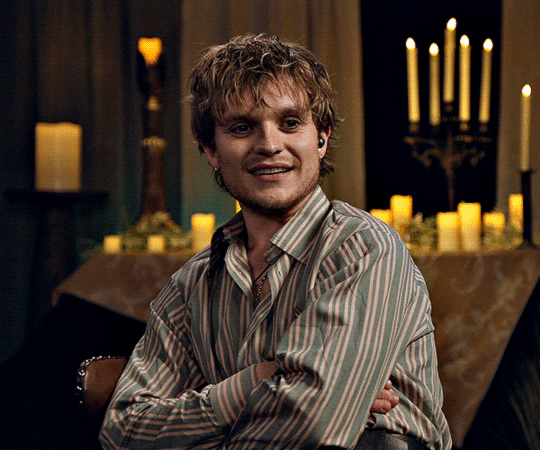
Series Summary: Aemond is embroiled in a fierce battle to secure the Democratic Party nomination and defeat his archnemesis, Richard Nixon, in the presidential election. You are his wife of two years and wholeheartedly indoctrinated into the Targaryen political dynasty. But you have an archnemesis of your own: Aemond’s chronically delinquent brother Aegon.
Series Warnings: Language, sexual content (18+ readers only), violence, bodily injury, character deaths, New Jersey, age-gap relationships, drinking, smoking, drugs, pregnancy and childbirth, kids with weird Greek names, historical topics including war and discrimination, math.
Word Count: 5.9k
Let me know if you’d like to be tagged! 🥰
💜 All of my writing can be found HERE! 💜
The October surprise is a great American tradition. As the phases of the moon revolve towards Election Day, the candidates and their factions seek to ruin each other. Lies are told, truths are exposed, Tyche smiles and Achlys brews misery, poison, the fog of death that grows over men like ivy. The stars align. The wolves snap their jaws.
In 1844, an abolitionist newspaper falsely accused James K. Polk of branding his slaves like cattle. In 1880, a letter supposedly authored by James Garfield—in actuality, forged by a New York journalist—welcomed Chinese immigrants in an era when they were being lynched by xenophobic mobs in Los Angeles and San Francisco. In 1920, a rumor emerged that Warren Harding had Black ancestry, an allegation his campaign fervently denied to keep the support of the Southern states. In 1940, FDR’s press secretary assaulted a police officer outside of Madison Square Garden. In 1964, one of LBJ’s top aids was arrested for having gay sex at the Washington D.C. YMCA.
Now, in 1968, Senator Aemond Targaryen of New Jersey is realizing that he will not be the beneficiary of the October surprise he’s dreamed of: his wife’s redemptive pregnancy, a blossoming first family. There is a civil rights protest that turns into a riot in Milwaukee; this helps Nixon, the candidate of law and order. For every fire lit and window shattered, he sees a bump in the polls from businessowners and suburbanites who fear anarchy. Breaking news of the My Lai massacre—committed back in March but only now brought to light—airs on NBC, horrifying the American public and bolstering support for Aemond, the man who has vowed to begin ending the war as soon as he’s sworn into office. The two contestants are deadlocked. Election Day could be a photo finish.
Nixon is in Texas. Wallace is in Arkansas. In Florida, Aemond visits the Kennedy Space Center and pledges to fulfill JFK’s promise to put a man on the moon by 1970. He makes a speech at the Mary McLeod Bethune Home commending her work as an educator, philanthropist, and humanitarian. He greets soldiers at the Naval Air Station in Pensacola. He feeds chickens to the alligators at the Saint Augustine Alligator Farm Zoological Park.
But it is not the senator the crowds cheer loudest for. It is his wife, his future first lady, here in her home state where she staunched her husband’s hemorrhaging blood and appeared before his well-wishers still marked with crimson handprints. In Tarpon Springs, she and Aemond attend mass at the Saint Nicholas Greek Orthodox Cathedral and pray at an altar made of white marble from Athens. Then they stand on the docks as flashbulbs strobe all around them, watching sponge divers reappear from the depths, breaking through the bubbling sapphire water like Heracles ascending to Mount Olympus.
~~~~~~~~~~
You kick off your high heels, tear the pins and clips out of your hair, and flop down onto the king-sized bed in your suite at the Breakers Hotel. It’s the same place Aemond was almost assassinated five months ago. He has returned in triumph, in defiance. He cannot be killed. It is God’s will.
You are alone for these precious fleeting moments. Aemond is in Otto’s suite discussing the itinerary for tomorrow: confirmations, cancellations, reshufflings. You pick up the pink phone from the nightstand on Aemond’s side of the bed and dial the number for the main house at Asteria. It’s 9 p.m. here as well as there. Through the window you can see inky darkness and the kaleidoscopic glow of the lights of Palm Beach. The Zenith radio out in the kitchenette is playing Satisfaction by the Rolling Stones. No intercession from Eudoxia is necessary this time; Aegon answers on the second ring.
“Yeah?” he says, slow and lazy like he’s been smoking something other than Lucky Strikes.
“Hey.” And then after a pause, twirling the phone cord around your fingers as you stare up at the ceiling: “It’s me.”
“Oh, I know. Should I take off my pants, or…?” He’s only half-joking.
You smile. “That was stupid. Someone could have bugged the phone.”
“You think Nixon’s guys are wiretapping us? Give me a break. They’re goddamn buffoons. They’re too busy telling cops to beat hippies to death.” You hear him taking a drag off his joint, envision him sprawled across his futon and enshrouded in smoke. “Everything okay down there in the swamp?”
You shrug, even though Aegon can’t see you. “It’s fine.”
“Just fine?”
“My parents were there when we stopped in Tarpon Springs. They kept telling everyone how proud they are of me, and I just felt so…dishonest.”
“Of course they’re proud. If Aemond wins, the war ends and more civil rights bills get passed and this hell we’ve all been living in since 1963 goes away.”
“I miss you,” you confess.
“You’ll be back soon to enjoy me in all my professional loser glory.” He’s right: Aemond’s entourage will spend Halloween at Asteria. You’ll take the children trick-or-treating around Long Beach Island—with journalists in tow, of course—and then host a party with plentiful champagne and Greek hors d’oeuvres, one last reprieve before the momentous slog towards Election Day on November 5th, a reward for the campaign staffers and reporters who have served Aemond so well. “What are you going to dress up as?”
“Someone happy,” you say, and Aegon chuckles, low and sardonic. “Actually, nothing. Aemond and Otto have decided that it would be undignified for the future president and first lady to be photographed in costumes, so I will be wearing something festive yet not at all fun.”
“Aemond has always been somewhat confused by the concept of fun.”
“What are you going to be for Halloween?”
You can hear the grin in his voice as he exhales smoke. “A cowboy.”
“A cowboy,” you repeat, giggling. “You aren’t serious.”
“Extremely serious. I protect the cows, I comfort the cows, I breed the cows…”
“You are mentally ill. You belong in an asylum.”
“I ride the cows…”
“Cowboys do not ride cows.”
“Maybe this one does.”
“I thought you liked being ridden.”
Aegon groans with what sounds like genuine discomfort. “Don’t tease me. You know I’m celibate at the moment.”
“Miraculous. Astonishing. The Greek Orthodox Church should canonize you. What have you been doing with all of your newfound free time?”
“Taking the kids out sailing, hiding from Doxie, trying not to step on the Alopekis…and playing Battleship with Cosmo. He has a very loose understanding of the rules.”
“He does. I remember.”
“He keeps asking when you’ll be back.”
“Really?” you ask hopefully.
“Yeah, it’s cute. And he calls you Io because he heard me do it.”
“Not an appropriate myth for children, I think.”
“Cosmo’s what, seven years old?”
“Five.”
“Close enough. I think I knew about death and torment and Zeus being a slut by then.”
“And you have no resulting defects whatsoever.” You roll over onto your belly and slide open the drawer of the nightstand. Instead of the card Aegon gave you at Mount Sinai—you’ve forgotten that you’re on Aemond’s side of the bed—you find something bizarre, unexpected, just barely able to fit. “Oh my God, there’s a…there’s a Ouija board in the nightstand!”
Aegon laughs incredulously. “There’s a what?!”
“A Ouija board!” You sit upright and shimmy it out, holding the phone to your ear with one shoulder. The small wooden planchette slides off the board and clatters against the bottom of the drawer. “Why the hell would Aemond have this…?”
“He’s trying to summon the ghost of JFK to stab Nixon.”
“Oh wow, it’s heavy.” You skim your fingertips over the black numbers and letters etched into the wooden board. There’s something ominous about the Good Bye written across the bottom. You can’t beckon the dead into the land of the living without reminding them that they aren’t welcome to stay.
“Aemond is such a freak. Is it a Parker Brothers one, like for kids…?”
“No, I think it’s custom made. It feels substantial, expensive. Hold on, there’s something engraved on the back.” You flip over the Ouija board so you can see what your hands have already felt. The inscription reads in onyx cursive letters: No ghosts can harm you. The stars were never better than the day you were born. With love through all the ages, Alys.
“What’s it say?” Aegon asks from his basement at Asteria.
You’re staring down at the Ouija board, mystified. “Who’s Alys?”
Instead of an answer, Aegon gives you a deep sigh. “Oh. Yeah, she would give him something like that. Fucking creepy witch bullshit.”
“Aegon, who’s Alys?” She’s his mistress. She has to be. It fills your skull like flashbulbs, like lightning: Aemond climbing on top of another woman, conquering her, owning her, binding her up in his mythology like a spider building a web. And what you feel when the shock begins to dissolve isn’t envy or pain or betrayal but—strangely, paradoxically—hope. “She’s his girl, right?”
“Please don’t be mad at me for not telling you,” Aegon says. “There wasn’t a good time. When I hated you I didn’t care if he was fucking around, and then after what happened in New York I didn’t want to hurt you, I didn’t know how you’d take it. It’s not your fault, there’s nothing wrong with you. She was here first. He’d have kept Alys around if he married Aphrodite herself.”
“I’m not mad.” You’re distracted, that’s what you are; you’re plotting. “Where is she?”
“She lives in Washington state. I’m not sure exactly where, I think Aemond moves her a lot. He doesn’t want anyone to see him around and start noticing a pattern. Neighbors, shopkeepers, cops, whoever.”
“Washington.” Just like when Ari died. Just like when Aemond didn’t come back. “Who knows about her?”
“Just the family. Fosco and Mimi found out because when they married in, the fights were still happening. Otto and Viserys demanding he give Alys up, Aemond refusing. It’s the only thing he ever did wrong, the only line he drew. He said he needed her. She could never be his first lady, but she could be something else.”
“His mistress.”
“Yeah,” Aegon says reluctantly. “Are you…are you okay?”
“I’m okay. What’s wrong with Alys?”
“What?”
“Why couldn’t Aemond marry her?”
“I mean, she’s the type of psycho who gives people Ouija boards, first of all,” Aegon says. “And she’s…she’s not educated. Her family’s trash. She’s older than Aemond. Hell, she’s older than me. She would be an unmitigated disaster on the campaign trail. She unnerves people. But Aemond, he…”
“He loves her,” you whisper, reading the engraving on the back of the board again. “And she loves him.”
“I guess. Whatever love means to them.”
A thought occurs to you, the first one to bring you pain like a needle piercing flesh. “Does she have children?”
Again, Aegon sounds reticent to disclose this. “A boy. Aemond’s the father.”
“How old?”
“I don’t know, I think he’s around ten now.”
And that’s Aemond’s true heir. Not Ari, not any others he would have with me. That place in his heart is taken. He couldn’t mourn the loss of our son because he already has one with the woman he loves.
Out in the living room of the suite, you hear the front door open. There are footsteps, Aemond’s polished black leather shoes.
Aegon is asking: “Are you sure you’re okay? Hello? Babe? Hello? Are you still there?”
“I’m fine. I gotta go.”
“Wait, no, not yet—!”
“Bye.” You hang up the phone and wait for Aemond to discover you. You’re still clutching the Ouija board. You’re perched on the edge of the bed like something ready to pounce, to kill.
Aemond opens the bedroom door, navy blue suit, blonde hair short and slicked back, his eyepatch covering his empty left socket. He’s begun wearing his eyepatch in public more often—not for every appearance, but for some of them—and whoever finally convinced him to concede this battle wasn’t you. His right eye goes to you and then to the Ouija board in your hands. He doesn’t speak or move to take the board, only studies you warily.
“I know about her,” you tell him.
Still, Aemond says nothing.
“Alys,” you press. “She’s your mistress. You’re in love with her.”
“I did not intend to hurt you.” His words are flat, steely.
“I’m not hurt, Aemond.”
“You shouldn’t have ever known about this. I apologize for not being more discrete. It was a lapse in judgment.” But what he regrets most, you think, is that his secret is less contained, more imperiled.
“What we have is a political arrangement,” you say. The desperation quivers in your voice. “You don’t love me, you never have, and now we can be open about it. You need me to win the White House, but that’s all. Your true companion is elsewhere. I want the same thing.”
He steps closer, eye narrowing, iris glinting coldly, puzzled like he couldn’t have understood you correctly. “What?”
“I want to be permitted to have my own happiness outside of this imitation of a marriage.”
“No,” Aemond says instantly.
Your stomach sinks, dark iron disappointment. “But…but…why?”
“Because I don’t trust you to not get caught. Because I need to be sure that I am the father of the children you’ll give birth to. And because as my wife you are mine, and mine alone.”
Tears brim in your eyes; embers burn in your throat. “You’re asking for my life. My whole life, all of it, everything I’ll ever experience, everything I’ll ever feel. I get one chance on this planet and you’re stealing it away from me.”
“Yes,” Aemond agrees simply.
“So where’s my consolation?” you demand. “You get Alys, so where’s mine?”
“What do you want?”
You don’t reply, but you glare at your husband with eternal rage like Hera’s, with fatal vitriol like Medusa’s.
“You think I don’t know about that little card you keep in your nightstand?” Aemond is furious, betrayed. “You used to hate him.”
“I was wrong.”
“Because he was at Mount Sinai and I wasn’t? Three days undid everything we’ve ever been to each other? Our oaths, our ambitions?!”
“No,” you say, tears slipping down the contours of your cheeks. “Because he’s real. He doesn’t try to manipulate people into loving him, he doesn’t pretend to be someone he’s not, when he’s cruel it’s because he means it and when he’s kind that’s genuine too. And he wants to know me, who I really am. Not the woman I have to act like to get you elected. Not who you’re trying to turn me into—”
Aemond has crossed the room, grabbed the front of your teal Chanel dress, and yanked you to your feet. The Ouija board jolts out of your hands and lands on the carpet unharmed. Your long hair is in disarray, your eyes wide and fearful. You try to push Aemond away, but he ignores you. You can’t sway him. You’ve never been able to. “Aegon has nothing to his name except what this family gives him,” Aemond snarls, hushed, hateful. His venom is not for his brother but for you. You have upended the natural order of things. You have dared to deny Zeus what he has been divinely granted dominion over. “You would jeopardize his wellbeing, his access to his children? You would ruin yourself? You would doom this nation? If you cost me the election, every drop of blood spilled is on your hands, every body bag flown home from Vietnam, every martyr killed by injustice here. What you ask for is worse than being a traitor and a whore. It is sacrilege.”
“Let go of me—”
“And there’s one more thing.” Aemond pulls you closer so he knows you’re paying attention. You’re sobbing now, trembling, choking on his cologne, shrinking away from his furnace-heat wrath. “Aegon isn’t capable of love. Not the kind you’re imagining. He gets infatuated, and he uses people, and then he moves on. You think he never charmed Mimi, never made her feel cherished by him? And look how she ended up. I’m trying to carve your name into legend beside mine. Aegon will take you to your grave.”
Your husband shoves you away, storms out of the bedroom, slams the door so hard the walls quake.
~~~~~~~~~~
Parading down streets like the victors of a fallen city, jack-o-lanterns keeping watch with their laceration grins of firelight. Hecate is the goddess of witchcraft, Hades rules the Underworld, Selene is the half-moon peeking through clouds in an overcast sky. The stars elude you.
The children—ghosts, pirates, princesses, witches—dash from doorstep to doorstep like soldiers in Vietnam search tunnels. They smile and pose in their outfits when the journalists prompt them, beaming and waving, showing off their Dots, Tootsie Pops, Sugar Daddies, Smarties, Razzles, and candy cigarettes before depositing them in the plastic orange pumpkins that swing from their wrists. Only Cosmo, dressed as Teddy Roosevelt with lensless glasses and a stuffed lion thrown over one shoulder, stays with the adults. He is the last one to each house, approaching the doorway reticently like it might swallow him up, inspiring fond chuckles and encouragement from the reporters. He clutches your hand and hides behind you when towering monsters lumber by: King Kong, Frankenstein, vampires with fake blood spilling from their mouths.
Aemond wears a black suit with orange accents: tie, pocket square, socks. You glimmer in a black dress dotted with white stars, clicking down the sidewalk in boots that run to your knees, silver eyeshadow, heavy liner. You almost look your own age. There are large star-shaped barrettes in your pinned-up hair, bent glinting metal. As the reporters snap photos of you and Cosmo walking together, they shout: “You’ll be such a great mother one day, Mrs. Targaryen!”
Fosco is Ettore Boiardi—better known as Chef Boyardee—an Italian immigrant who came through Ellis Island in 1914 with a dream of opening a spaghetti business. Helaena, Alicent, and Ludwika are, respectively, Alice, Wendy, and Cinderella; Ludwika clops along resentfully in her puffy sleeves and too-small clear stilettos. Criston is Peter Pan. Aegon wears a white button-up shirt, cow print vest, ripped jeans, brown leather boots, a cowboy hat that’s too big for him, and a green bandana knotted around his throat. He stays close to you and Cosmo because he can, here where the journalists expect to see him being a devoted father and active participant in the family business of mending a tattered America. Teenagers are fleeing their families to join hippie communes and draftees in Vietnam are getting their limbs blown off and junkies are shooting up on the streets of New York and Chicago and Los Angeles, but here we see a happy family, a perfect family, a holy trinity that thanks the devotees who offer them tribute. Otto, who neglected to don a disguise, glares at you murderously. You have failed to give Aemond a living child. You have dared to want things for yourself.
Back at Asteria in the main house, the children empty their plastic pumpkins on the living room floor and sort through their saccharine treasures, making trades and bargains: “I’ll do your math homework if you give me those Swedish Fish,” “I’ll let you ride my bike for a week if I can have your Mallo Cup.” While the other adults ply themselves with champagne and chain smoke away the stress of the campaign trail, Aegon gets his Caribbean blue Gibson guitar and sits on the couch playing I’m A Believer by The Monkees. The kids clap and sing along between intense confectionary negotiations. Cosmo wants to share his candy cigarettes with you; you pretend to smoke together as sugar melts on your tongue.
Now the children have been sent to bed—mollified with the promise of homemade apple pies tomorrow, another occasion to be documented by swarms of clamoring journalists—and the house becomes a haze of smoke and indistinct conversation and music from the record player. Platters of appetizers have appeared on the dining room table: pita, tzatziki, hummus, melitzanosalata, olives, horiatiki, mini spanakopitas, baklava. Women are chattering about the painstaking labor they put into costumes and men are scheming to deliver death blows to Nixon, setbacks in Vietnam, Klan meetings in Mississippi. Aemond is knocking back Old Fashioneds with Otto and Sargent Shriver. Fosco is dancing in the living room with drunk journalists. Eudoxia is muttering in Greek as she aggressively paws crumbs off of couches and tabletops. Thick red candles flicker until wax melts into a pool of blood at the base.
Through the veil of cigarette smoke and the rumbling bass of Season Of The Witch, Aegon finds you when no one is looking, and you know it’s him without having to turn around. His hand is the only one that doesn’t feel heavy when it skims around your waist. He whispers, soft grinning lips to your ear, rum and dire temptation like Orpheus looking back at Eurydice: “Let’s do some witchcraft.”
You know where Aemond keeps the Ouija board. You take it out of the top drawer of his nightstand in your bedroom with blue walls and portraits of myths in captive frames. Then you descend with Aegon into the basement, down like Persephone when summer ends, down like women crumbling under Zeus’s weight. You remember to lock the door behind you. You’re not high—you can’t smoke grass in a house full of guests who could smell it and take it upon themselves to investigate—but you feel like you are, that lightness that makes everything more bearable, the surreal tilt to the universe, awake but dreaming, truth cloaked in mirages.
Aegon has stolen three red candles from upstairs. He hands one to you, keeps a second for himself, and places the third on his end table beside a myriad of dirty cups. You glimpse at his ashtray and a folded corner of the receipt that’s still tucked beneath it, and you think: I have my card, Aegon has his receipt, Aemond has his Ouija board. I wonder what Alys likes to keep close when she sleeps. Then Aegon clicks off the lamp so the only light is from the flickering candles.
He tosses away his cowboy boots, hat, vest and is down on the green shag carpet with you, his hair messy, his white shirt half-unbuttoned. He’s taking sips of Captain Morgan straight from the glass bottle. He’s lighting a Lucky Strike with the wick of his candle and then giving it to you to puff on as he places the planchette on the board. “Wait, how do we start?”
You exhale smoke, setting your candle down on the carpet and then tugging off your own boots with some difficulty. “We have to say hello.”
“Okay.” Aegon places his fingertips on one side of the heart-shaped planchette and you rest yours lightly on the other. He begins doubtfully: “Hello…?”
“Is there anyone who would like to send us a message from the other side this evening?”
“You’ve done this before,” Aegon accuses.
“I have. In college.”
“With a guy?”
You chuckle, taking a drag as the cigarette smolders between your fingers. “No, with my friends. It’s not really a date activity.”
“I think it’s very romantic. Candles, darkness, danger, who’s gonna protect you when the ghosts start throwing things around…”
“You’d fight a ghost for me?”
“Depends on the ghost. FDR? You got it. I can take a guy in a wheelchair. Teddy? No ma’am. You’re on your own.”
“Which ghost should we summon?”
Aegon ponders this for a moment. “John F. Kennedy, are you in this basement with us right now?”
“That is wrong, that is so wrong.”
“Then why are you smiling?” Aegon says. “JFK, how do you feel about Johnson fucking up your legacy?”
“That is not the kind of question you’re supposed to ask. We’re not on 60 Minutes.”
“JFK, do you haunt the White House?” Aegon drags the planchette to the Yes on the board. “Oh no, I’m scared.”
“You are a cheater, this is a fraudulent Ouija board session.” You put your cigarette out in the ashtray and then take a swig from Aegon’s rum bottle. “JFK, are we gonna make it to the moon before 1970?”
Aegon pulls the planchette to the No. “Damn, Io, bad news. Guess the Russians win the Space Race and then eradicate capitalism across the globe. No more beach houses. No more Mr. Mistys.”
“Give me the planchette, you’re abusing your power.”
“No,” Aegon says, snickering as you try to wrestle it away from him. In his other hand he’s clutching his candle; scarlet beads of wax like blooddrops pepper your skin as you struggle, tiny infernos that burn exquisitely. Red like paint splatter appears on Aegon’s shirt. You grab the green bandana around his throat, but instead of holding him back you’re drawing him closer. The Ouija board and all the world’s ghosts are momentarily forgotten.
“You’re dripping wax on me—”
“Good, I want to get it all over you, then I want to peel it off and rip out your leg hair.”
You’re laughing hysterically as you pretend to try to shove him away. “I’m freshly shaved, you idiot.”
“Everywhere?” Aegon asks, intrigued.
You smirk playfully. “Almost.”
“Okay, let’s get you cleaned up.” Aegon sets his candle down on the carpet and strips away tacky dots of red wax: one from your forearm down by your wrist, another from your neck just below one of your silver hoop earrings, wax from your ankles and your calves and right above your knees. His fingertips are calloused from his guitar, from the ropes of his sailboat. They scratch roughly over you, chipping away who you’re supposed to be.
Then Aegon stops. You follow his gaze down. There is a smudge of wax on the inside of your thigh, extending beneath the hem of your dress, glittering black and white fabric that hides what is forbidden to him. Aegon’s eyes are on you, that troubled opaque blue, drunk and desperate and wild and afraid. With your fingers still hooked beneath his bandana, you say to him like a dare: “Now you’re going to stop?”
His palm skates up the smoothness of your thigh, and as he unpeels that last stain of red wax his other hand cradles your jaw and his lips touch yours, gently at first and then with the ravenousness of someone who’s been dying of thirst for centuries, starving since birth. You’re opening your legs wider for him, and his fingers do not stop at your thigh but climb higher until they are whisking your black lace panties away, exploring your folds and your wetness as his tongue darts between your lips, tasting something he’s been craving forever but only now stumbled into after four decades of darkness, trapped in you like Narcissus at his pool.
You are unknotting his green bandana and letting it fall to the shag carpet. You are unbuttoning the rest of his shirt so you can feel his chest, soft and warm and yielding, safe, real. The candlelight is flickering, the thumping bass of a song you can’t decipher pulsing through the floor above. Now beneath your dress Aegon’s fingers are pressing a place that makes your breath catch in your throat, makes you dizzy with need for him. He looks at you and you nod, and he reads in your face what you wanted to say months ago in this same basement: Don’t stop. Come closer.
Aegon lifts your dress over your head, nips at your throat as he unclasps your bra, and you are suddenly aware of how the cool firelit air is touching every part of you, how you are bare for him in a way you’ve never been before. You catch Aegon’s face in your hand before he can see the scar that runs down the length of your belly and say, your voice quiet and fragile: “Don’t look at me.”
Pain flashes in his eyes, furrows across his brow. “Stop,” he murmurs, kissing your forehead as you cling to him. Then he begins moving lower and you fall back onto the carpet, no blood on Aegon’s hands this time, only your sweat and lust for him, only crystalline evidence of a betrayal you’ve long ago already committed in your mind.
You’re combing your fingers through his hair and gasping as Aegon’s lips ghost down your scar, not something ruinous or shameful but a part of you, the beginning of your story together, the origin of your mythology. Then his mouth is on you—yearning, aching wetness—and you thought you knew what this felt like but it’s more powerful now, more urgent, and Aegon is glancing up to watch your face, to study you, to change what he’s doing as he follows your clues. And then there is a pang you think is too sharp to be pleasure, too close to helplessness, something that leaves you panting and shaking.
You jolt upright. “Wait…”
Aegon props himself up on his elbows. His full lips glisten with you. “What? What’d I do wrong?”
“No, it’s not you, it’s just…it’s like…” You can’t describe it. “It’s too…um…too intense or something. It’s like I couldn’t breathe.”
Aegon stares at you, his eyebrows low. After a long pause he says: “Babe, you’ve come before, right?”
I’ve what? “Yeah, of course, obviously. I mean…I think so?”
He’s stunned. He’s in disbelief. Then a grin splits across his face. “Lie back down.”
You’re nervous, but you trust him. If this costs you your life, you’ll pay it. He pushes your thighs farther apart and his tongue stays in one spot—where you touched yourself in the bathtub in Seattle, where you wanted him when he slipped his fingers into you for the first time—and suddenly the uneasy feeling is something raging and irresistible like a riptide in the Atlantic, something better than anything you knew existed, and you keep thinking it’s happened but it hasn’t yet, as you cover your face with your hands to smother your moans, as your hips roll and Aegon’s arms curl under your thighs to keep you in place so he can make you finish. It’s a release that is otherworldly, celestial, terrifying, divine. It’s something that rips the curtain between mortals and paradise.
It’s always like this for men? That’s what Aemond has been getting from me, that’s what I’ve been denied?
As you lie gasping on the carpet Aegon returns, smiling, kissing you, running his fingers through locks of hair that have escaped from your pins. “Not bad, right little Io?” he purrs, smelling like rum and minerals, earth and poison. Now he’s taking off his jeans, but before he can position himself between your legs you have pushed him onto his back and straddled him, pinning his wrists to the floor, watching the amazement ripple across his flushed face, the desire, the need. You tease Aegon, leaning in to nibble at his ear and bite gingerly at his throat, never harming him, never claiming him, grinding your hips against his and listening as his breathing turns quick and rough. Then you slip him inside you, this man you once hated, this man who was a stranger and then a curse and now a spell.
Aegon wants to be closer to you. He sits up as you ride him, hands on your face, in your hair, kissing you, inhaling you, shuddering, trying not to cry out as footsteps and laughter and thunderous basslines bleed through the ceiling. You know he’s been high on so many things—things that corrupt, things that kill—and you hope you can compare, this brief clean magic.
He can’t last; he finishes with a moan like he’s in agony, and as the motion of your hips slows, you take his jaw in your grasp and gaze down at him. “Good boy,” you say with a grin. Aegon laughs, exhausted, drenched in sweat, his hair sticking to his forehead. He embraces you so tightly you can feel the pounding of his heart, racing muscle beneath bones and skin.
He’s murmuring through your disheveled hair: “I gotta see you again, when can I see you again?”
You don’t know what to say. You don’t have an answer. You unravel yourself from Aegon and dress yourself in the red candlelight: panties, bra, dress, boots, all things that Aemond chose for you, all things he bought with his family’s money, all things he owns. Aegon has nothing to his name and neither do you. You are—like Fosco once said—pieces of the same machine.
“Where are you going?” Aegon asks, like he’s afraid of the answer.
“I have to go back upstairs to the party before someone realizes I’m missing.”
“Are you serious?”
“I am.” You kneel on the carpet to kiss him one last time, your palm on his cheek, his fingers clutching at your dress as he begs you not to leave. “I have to, I have to,” you whisper, and then you do.
You grab the Ouija board and planchette off the green shag carpet, hug them to your chest, and hurry up the steps. The first floor of the Asteria house is a maze of cigarette smoke and clinking glasses, guests who are dancing and cackling and drunk. From the record player strums Johnny Cash’s Ring Of Fire. You slip unnoticed to the staircase.
In the blue-walled bedroom you share with Aemond, you carefully place the Ouija board and planchette in the top drawer of his nightstand exactly as you found them. Then you go to your vanity to try to fix your hair. As you’re rearranging clips and pinning loose strands back into place, the door opens. Aemond is there, feeling beloved and invincible, looking for you. He crosses the room and closes his long fingers around your wrist. He wants you: under him, making children for him, possessed by him.
“Come to bed,” Aemond says.
“Not right now. I’m busy.”
“You aren’t busy anymore.”
“I told you no.”
He wrenches you from your chair. Instead of surrendering, you strike out, hitting him in the chest. You don’t harm him, you’re not strong enough, but genuine shock leaps into his scarred face.
“Don’t fucking touch me,” you hiss. You can’t let Aemond undress you; he will find the evidence of your treason, he will see it, feel it, taste it. But that’s not the only reason you stop him. “Every goddamn night I give you what you want, and exactly how you want it. Tonight I’m saying no. You want to take me? You’ll have to do it properly. I’m not going to give you the illusion of consent. You remember what Zeus did to all those women, right? Go ahead. Act like the god you think you are. But I’m going to fight you. And if those people downstairs hear me screaming, you can explain to them why.”
Aemond stares at you in the silvery light of the half-moon. You glare boldly back. At last he leaves and descends the staircase into an underworld of churning smoke, returning to the party to sip his Old Fashioneds and decide what to do with you.
#aegon ii targaryen#aegon targaryen#aegon targaryen ii#aegon ii#aegon targaryen x reader#aegon x reader#aegon ii x you#aegon ii fanfic#aegon ii x reader#aegon targaryen x you#aegon ii x y/n
293 notes
·
View notes
Text
happy trans day of visibility, i wanna share my favourite books i read for the trans rights readathon!
fiction:
fierce femmes and notorious liars: a dangerous trans girl's confabulous memoir by kai cheng thom (magical realism YA - a dark, humorous and surreal subversion of the "trans memoir" genre; trans MC+author)
a lady for a duke by alexis hall (cute historical regency romance; trans MC+genderqueer author)
the brides at high hill by nghi vo (fifth novella in the exquisite singing hills cycle; nonbinary MC; comes out may 7th!)
the salt grows heavy by cassandra khaw (weird (<-complimentary) and gory gothic horror novella about a killer mermaid and a plague doctor; nonbinary love interest+author)
nonfiction:
none of the above: reflections on life outside the binary by travis alabanza
readme.txt: a memoir by chelsea manning
#tdov#trans rights readathon#books#.txt#i'll be real there's a whole bunch of books i didnt get to so i might just keep going lmfao#i rly wanna read the devourers +her majesty's royal coven+the undetectables#and reread a psalm for the wild-built in polish#(i will definitely be normal abt reading a book i loved using nonbinary pronouns for the MC in my native language. for sure.)
46 notes
·
View notes